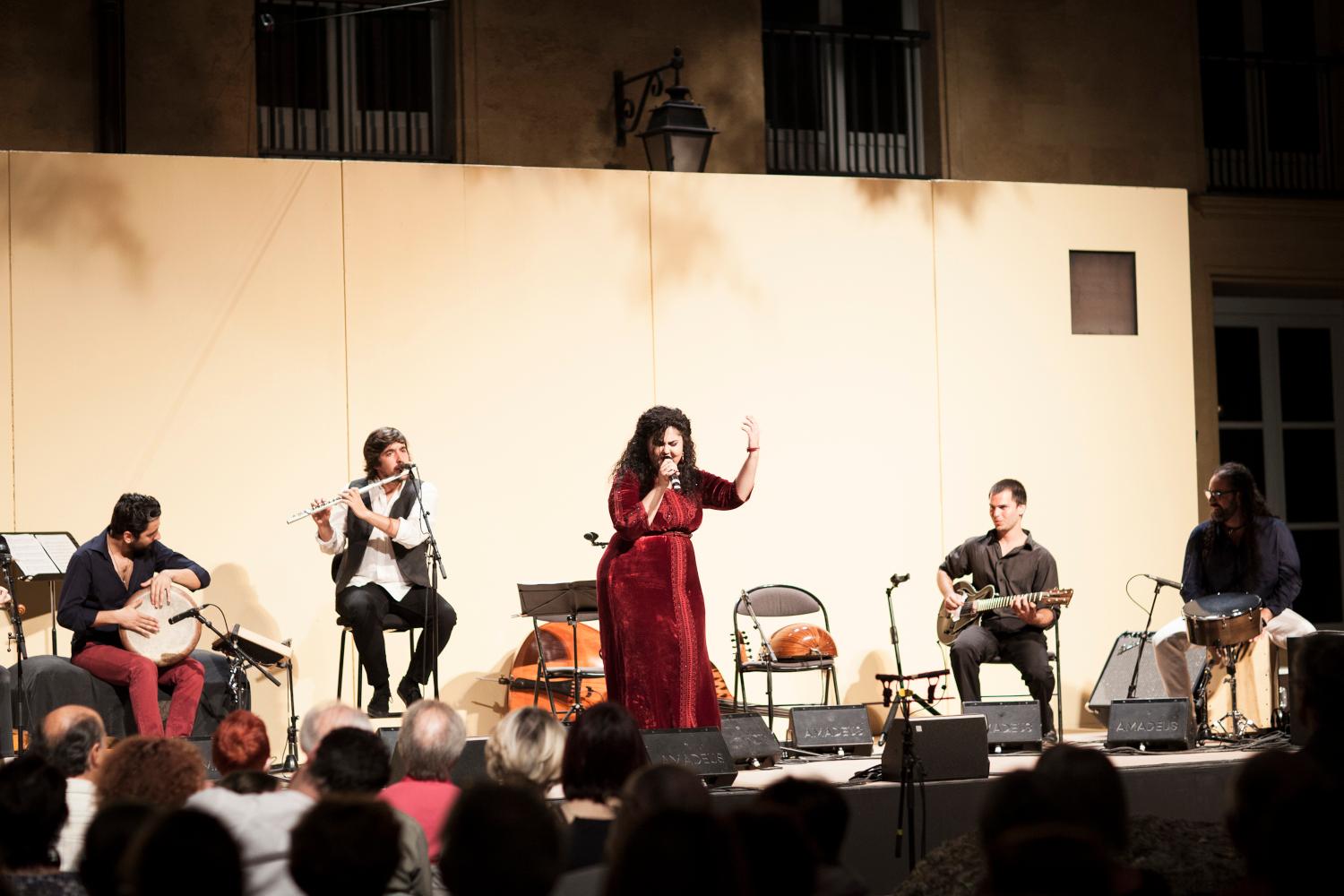The Académie - a thousand and one stories for a twenty-year adventure
1998-2001
1998-2001
1998-2001
1998-2001
1998-2001, building a utopia
The Académie européenne de musique was launched in 1998, when Stéphane Lissner arrived to take up the reins of the Festival d’Aix-en-Provence. The creation of the Académie is undeniably one of the key developments of his tenure – an ambitious project for which he received the support of all the Festival teams, and the unstinting collaboration of Béatrice de Laage. Moreover, before the project could be fine-tuned and committed to paper, the idea of the Académie was boosted by a formidable combination of energies, ideas and – not least – enthusiasm.
Originally, the Académie was conceived as an extension of the Festival d’Aix, with a view to attracting a younger audience and up-and-coming artists to the Festival. Although benefitting very early on from the financial support of the European Union, and despite its initial title of “Académie européenne”, the Académie aimed to open up to the rest of the world and to new creative practice, as its very first initiatives amply demonstrate.
— A COMPOSITION RESIDENCY UNDER THE AEGIS OF PIERRE BOULEZ
The protective mantle of Pierre Boulez hovers over the Académie from its birth, not to mention its gestation. In the autumn of 1997, Boulez launched a composition residency that would attract some 60 applications from around the world. Five composers, including a Finn, a Russian, an American and a Greek, were selected to prepare three operas and two ballets to be presented as part of the 1998 programme. Three singers – a soprano, a mezzo-soprano and a baritone – would lend their voices to the opera composers, while the Ballet Preljocaj provided choreographers and dancers. Two celebrated composers – Philippe Manoury and Marc-André Dalbavie – along with stage director Pierre Strosser, were the brilliant tutors for this residency.
What a lesson and a what a privilege it was to be able to work with Pierre Boulez when Stéphane Lissner asked me to assist him in relaunching the Festival. His tremendous courtesy, kindness, intelligence and helpfulness provided the cornerstones on which to build an ambitious and fair Académie de musique européenne, and his demanding but considerate advice a solid foundation for its successful development.
Béatrice de Laage, extract from her Hommage à Pierre Boulez
— THE ACADÉMIE’S FIRST THREE PRODUCTIONS – AND FIRST THREE SUCCESSES
The 1998 edition was planned as a period of renewal for the Festival d’Aix-en-Provence, and the Académie européenne de musique made a major contribution, with several workshops around key works of the opera repertoire: Mozart’s The Magic Flute, Purcell’s Dido and Æneas, and less well-known works such as Britten’s Curlew River. As if by magic, these three Académie workshops would lead to three successful productions that would tour all over Europe.
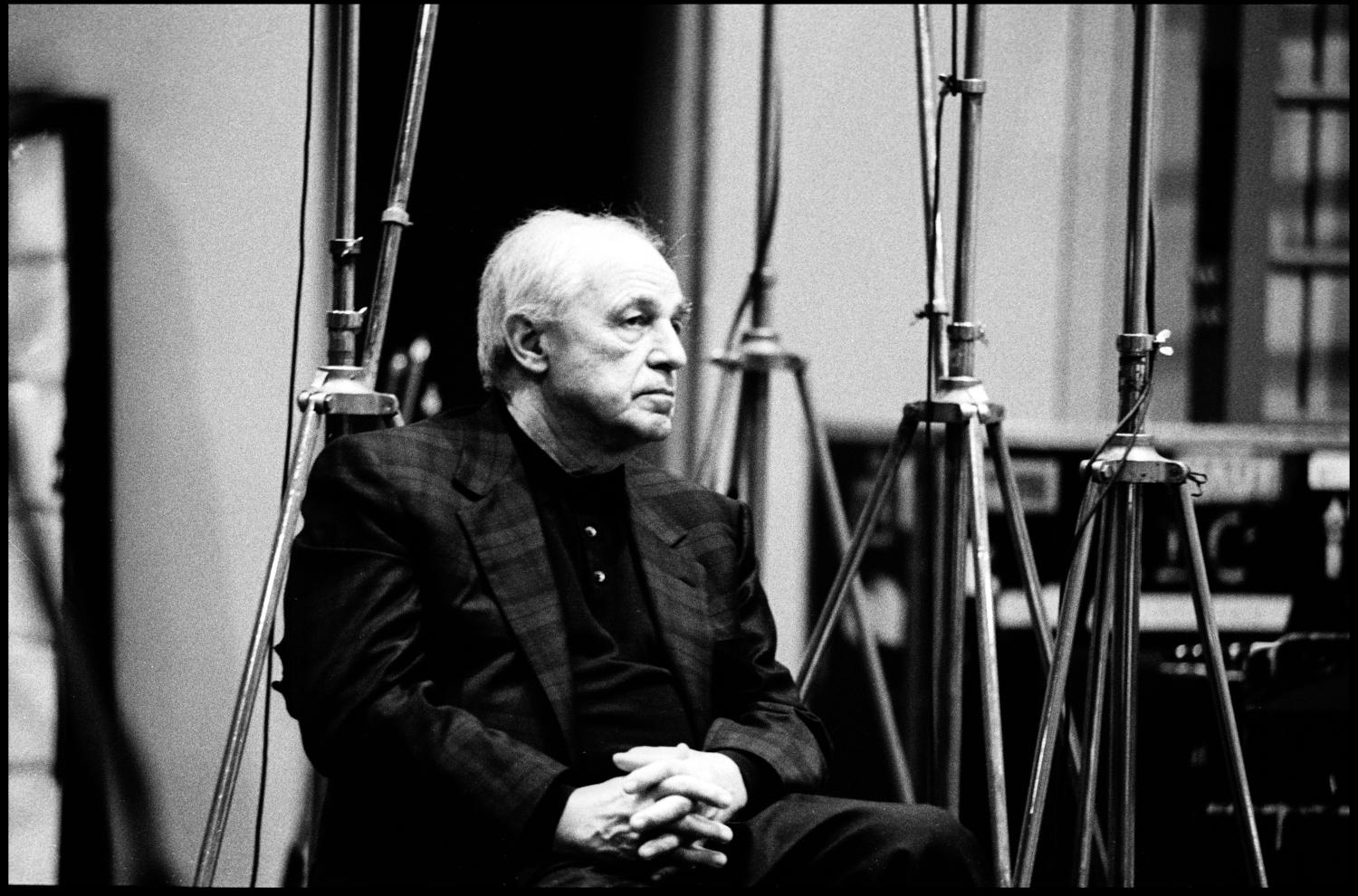
Pierre Boulez © DR
Our aim is to give young musicians the chance to open up, to listen to each other, to meet and interact with established artists and broaden their horizons. Our gamble seems to be paying off since, of the instrumentalists of the first edition, one has been appointed first viola of the BBC Scottish Symphony Orchestra, a violinist has been hired by the London Philharmonia Orchestra... We are lucky enough to have some singers from the previous edition, which ensures a certain continuity.
David Stern, La Croix, 25 July 1999
The students of the Académie européenne de musique form the artistic backbone of the July productions. All of them perform: the instrumentalists give daily chamber music concerts while filling the various sections of the youth orchestras; the singers perform in the productions, either in small individual roles or in the chorus. The chamber music classes are part of the Académie’s young orchestral musician programme. In addition, while David Stern was busy conducting Dido and Æneas, Curlew River and The Magic Flute, his father, the great violinist Isaac Stern, was coaching the orchestra musicians in chamber music workshops. Every evening, one of these chamber music ensembles would perform in public, either in a performance venue or in the streets of Aix-en-Provence: this is how the group’s cohesion was forged.
It isn’t easy to get cohesion straightaway with an orchestra of young people who have never worked together before. Over a two-week period, I have already done a lot of group work, and by the third ensemble rehearsal I’m just starting to get a consistent sound.
David Stern, La Croix, 25 June 1999
Inaugurating the Grand Saint-Jean on the occasion of the 50th anniversary of the Festival, the 1999 Magic Flute would long leave its mark on operatic memory. No-one could have guessed that a simple vocal workshop on Mozartian singspiel would lead to such a successful production. Directed by Stéphane Braunschweig and conducted by David Stern, this production included Stéphane Degout in the role of Papageno.
— MUSIC FROM ELSEWHERE – AND OF ALL KINDS
In the year 2000, Pierre Boulez opened the festivities with his composition Éclat/Multiples, interpreted by the student violists of the Académie and the Ensemble intercontemporain. Here, the composer was once again acting as a go-between for the Académie and the Festival proper. It was also under his influence that the Festival opened up its programme schedule to music from elsewhere. Focusing on instrumental innovation, all existing borders were broken down in this programme which, at the request of Boulez, juxtaposed his Éclat/Multiples with Scottish bagpipes, and his Rituel in memoriam Bruno Maderna with a gamelan orchestra group from the village of Sebatu (Bali). Far Eastern court rituals and Mandingo music from Africa rubbed shoulders with traditional music from Azerbaijan and Uzbekistan.
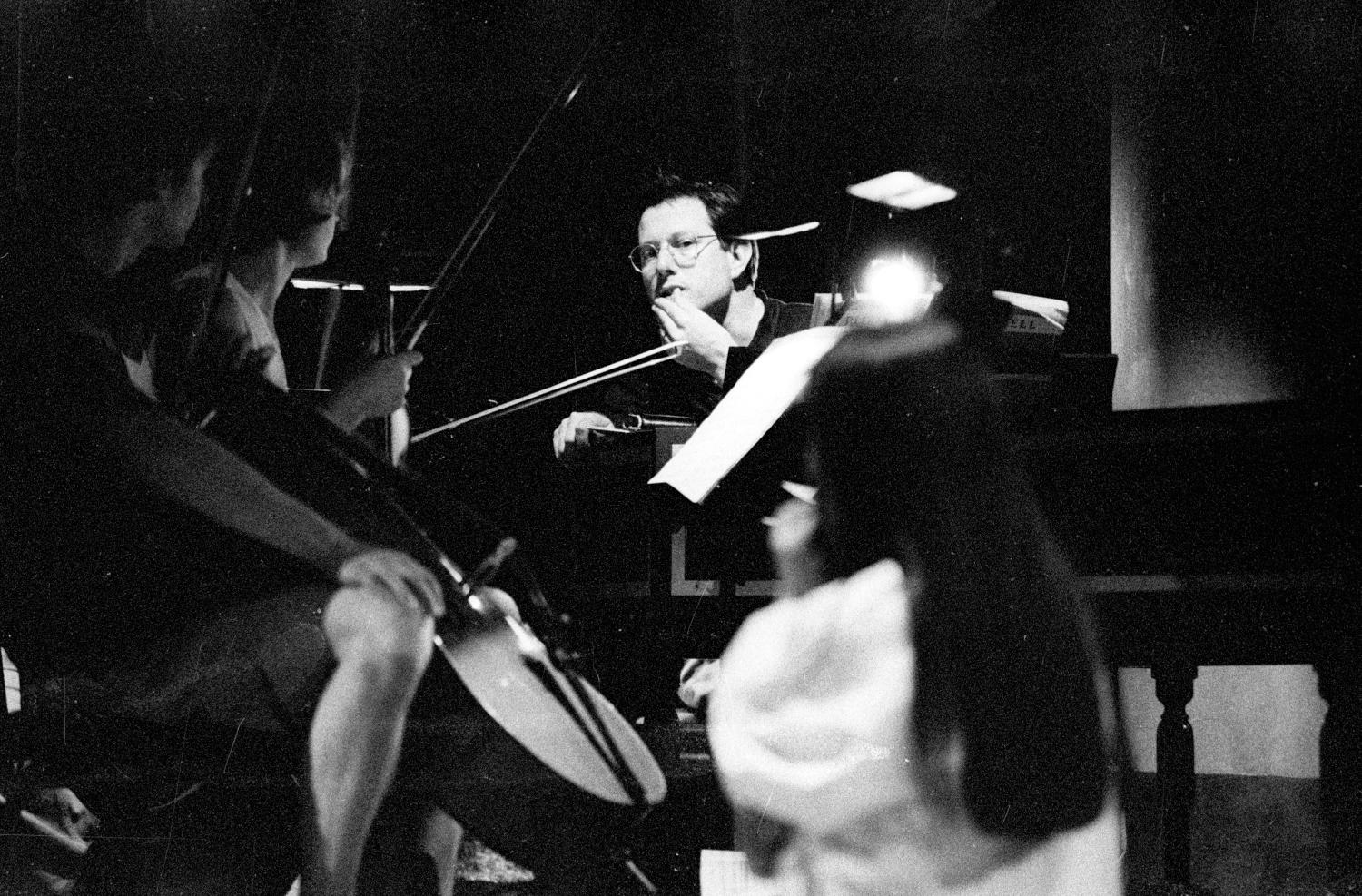
David Stern - Festival d'Aix-en-Provence 1998 © Elisabeth Carecchio
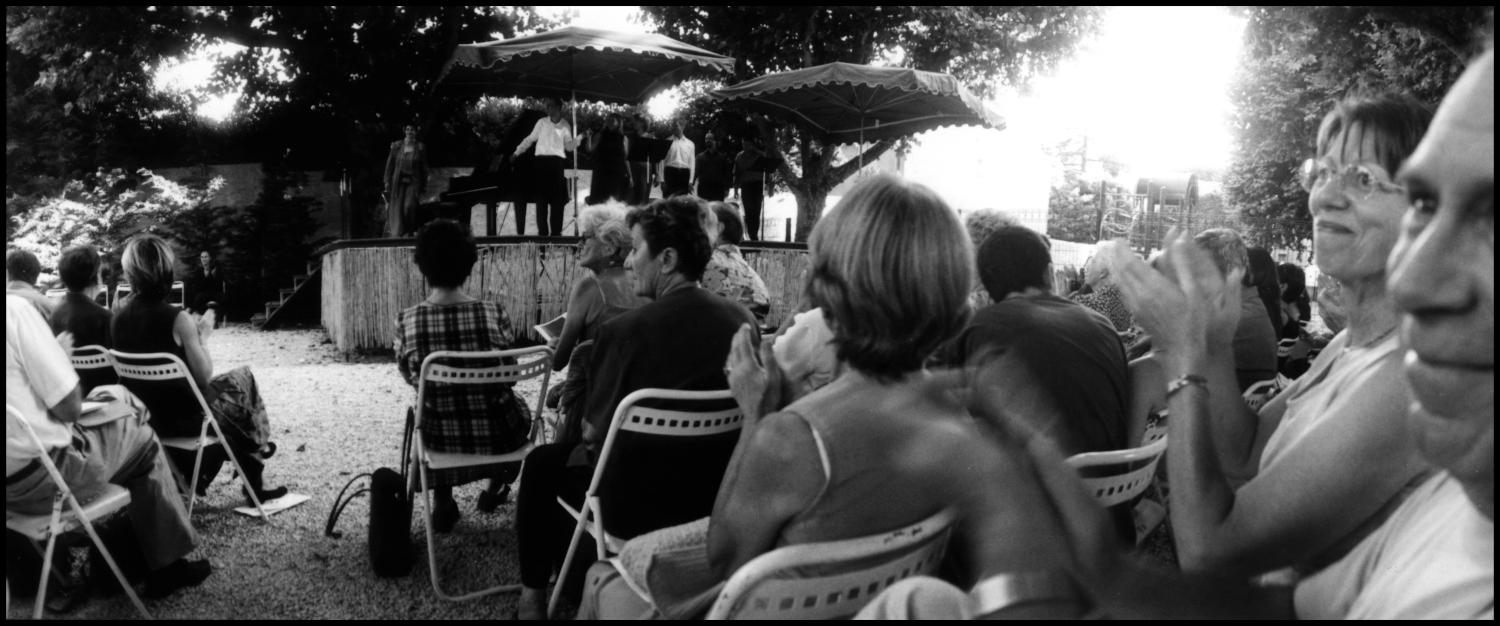
Festival d'Aix-en-Provence 2001 © Elisabeth Carecchio
— STRONG LOCAL ROOTS
The foundation of the Académie européenne de musique enabled the Festival d’Aix-en-Provence to forge a special link with its host city. In other words, the elitist image of the Festival began to fade as a growing localism took hold. The people of Aix felt increasingly drawn to the varied programme proposed by the Académie, which has always been keen to bring audiences and artists together. Every day, the Académie would stage a public event, and a “Passport” could be purchased to attend masterclasses, rehearsals, public workshops, recitals and concerts. With the launch of the Académie, the Festival d’Aix was no longer limited to three weeks of performances in July, but now spanned eight full weeks, the month of June being entirely devoted to the activities of the Académie européenne de musique. Productions such as Dido and Æneas toured the villages around Aix-en-Provence.
— AN EDUCATIONAL AND HUMAN DIMENSION
In the very first year of the Académie européenne de musique, a hundred trainees of all nationalities spent two months studying under prestigious maestros such as Régine Crespin, Gundula Janowitz, William Christie, Claudio Desderi and a very young Renaud Capuçon. The Amis du Festival association played a vital role in welcoming the Académie’s young people. Several families volunteered to play host to the trainees, while others helped them discover the iconic places of the city and its environs. Every year since 1999, the Amis du Festival association has awarded a prize to a young singer and a young instrumentalist who have attended the Académie workshops. The first winners were Stéphane Degout, who received the vocal award for the role of Papageno in The Magic Flute, while Teresa Stanislav, first violin of the Académie orchestra, shared the instrumental prize with horn player, Steinar Nielsen.
Although, with hindsight, these first three years of the Académie européenne de musique might appear to be an experimental laboratory phase, they ended up providing a solid basis on which the Académie du Festival d’Aix could continue to grow without ever reneging on its first instincts.
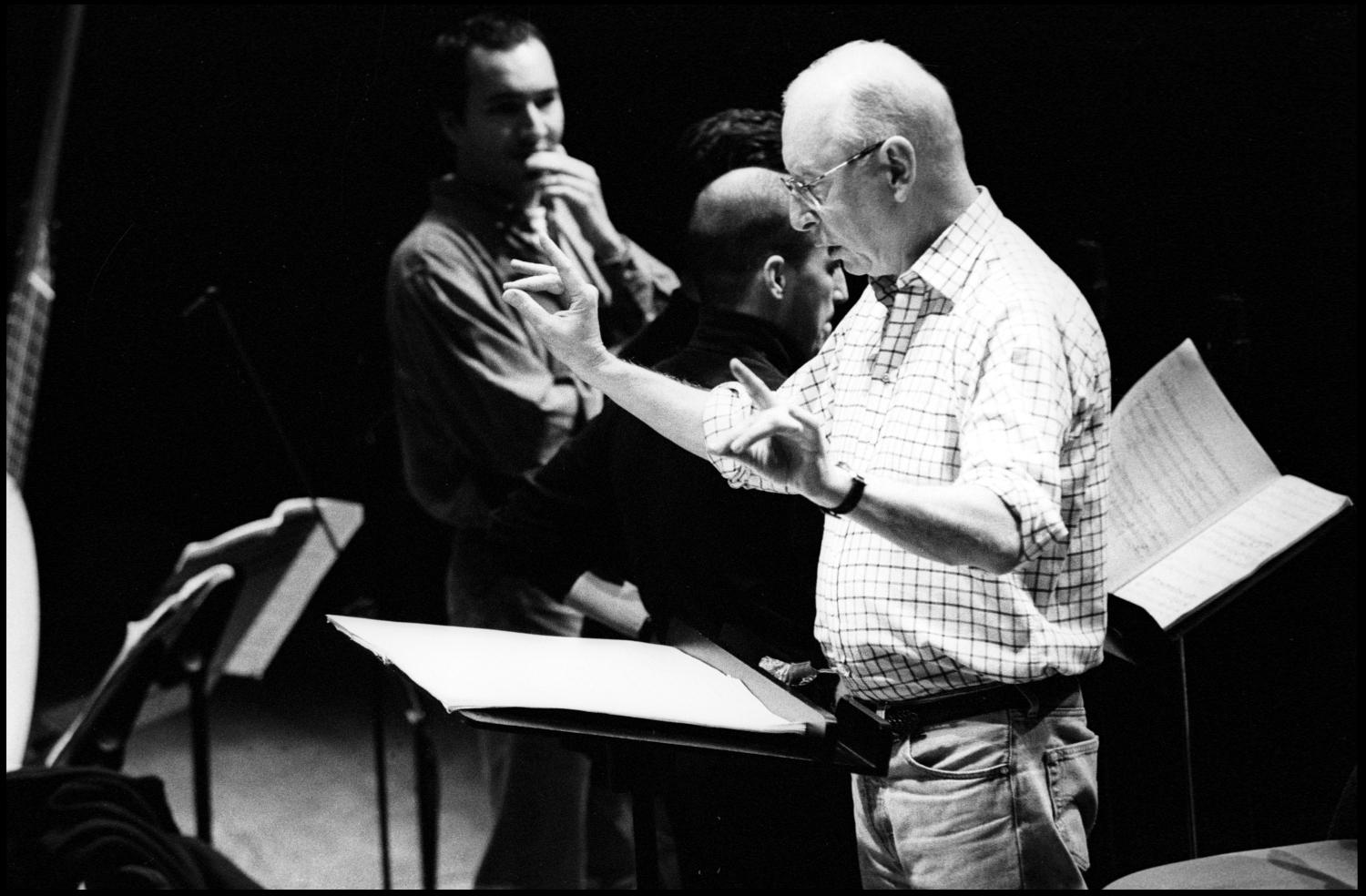
William Christie - Festival d'Aix-en-Provence 2001 © Elisabeth Carecchio
2001-2008
2001-2008
2001-2008
2001-2008
2001-2008, towards stability
After its first three years of successful experimentation, the Académie européenne de musique began to forge its own identity and autonomy from the Festival that had recently created it. To accompany this transition towards emancipation, Antoine Manceau was appointed to lead the Académie in 2001. Rather than presenting itself solely as an extension of the Festival d’Aix, the Académie soon became a separate entity without ever breaking or weakening its special link with the Festival. In other words, rather than being an integral part of the Festival, the Académie became a training centre that was intrinsically linked to it, but with a certain degree of autonomy in terms of image, programming and public relations. To deliver this huge project, Antoine Manceau surrounded himself with a small team of collaborators who devoted themselves body and soul to the Académie.
The Académie européenne de musique brought together under one roof all the professions represented at the opera: voice, instruments and opera creation. Three residencies – voice, chamber music since 2002 and, since 2007, opera creation – are held in June, before the festival period begins, and they continue to offer activities and concerts once the Festival d’Aix is in full swing. Ideally located at the heart of an organisation that creates and produces operas, this centre for training and transmission has all the resources it needs to build its future.
— THE ESTABLISHMENT OF A CHAMBER MUSIC RESIDENCY
While the Festival d’Aix was seen, first and foremost, as a temple to the art of opera, the Académie européenne de musique aimed to restore the status of instrumental music:
I insisted on the Académie offering training in this area. The Berlin Philharmonic’s four-year residency provides a wonderful opportunity for young professionals to rub shoulders with their talented elders, some of whom possess educational charisma and an inexhaustible generosity.
Interview with Antoine Manceau conducted by Emmanuelle Giuliani, La Croix, 14 July 2007
The inclusion of a chamber music hub within the Académie européenne de musique has its roots in one of the Festival’s flagship productions – Don Giovanni in 1998. This production, presented as part of the relaunch of the Festival d’Aix, marks the first steps of a newly-formed orchestra: the Mahler Chamber Orchestra. Claudio Abbado and his young assistant Daniel Harding had a brand-new orchestra to conduct for the occasion. In light of its success, Peter Brook’s Don Giovanni was performed as part of the 2002 edition. At the time, Antonello Manacorda, first violin and founding member of the Mahler Chamber Orchestra, nurtured a dream to create a chamber music Académie to mirror the existing voice Académie. And the dream, once placed in the expert and passionate hands of Antoine Manceau, became a reality. Together they pooled their talents and their address books to call on the greatest maestros, and held auditions to select ensembles of various sizes from around the world. In a twist of fate, one of the ensembles that had come from Israel to study in Aix – the Tal Trio with piano – included Gregory Ahss, who would go on to be Konzertmeister of the Mahler Chamber Orchestra. Antonello Manacorda, who was considering leaving his post as first violin to devote himself to full-time conducting, would shortly hand over to the young violinist she had spotted during his stay in Aix. Suffice to say that the Mahler Chamber Orchestra and the chamber music Académie both believe in youth!
— GOING OUT TO MEET THE AUDIENCE
The Académie must by definition be distinct from the conservatoire, which generally works behind closed doors. This means highlighting the work as it matures, as well as the act of creation.
Interview with Antoine Manceau conducted in 2017 by Aurélie Barbuscia
This was an imperative for the Aix-en-Provence Académie européenne de musique: the singers, instrumentalists, composers and dramaturges who studied here were also asked to tread the boards. Furthermore, most of the events – masterclasses, debates, rehearsals, concerts – took place in front of an audience. The Académie aimed to be a window on the work of these young artists. Starting in June, the residents of Aix and its region would come to support the first events staged by the Académie européenne de musique. The Académie deliberately decided to throw open its doors before the opera premieres, when the artists for the major productions were expected in Aix to start rehearsals. In other words, while the operas were being put together in the city, the already assembled Académie would give its first concerts, which audiences could access by means of a “Passport” – the forerunner of the current Pass. This marked a genuine opening-up to the audience, who were able to attend events every day, in locations as varied as they were unusual. However, audiences that did not make the trip to the Académie were not left out, since the Académie’s artists were required to tour the Department of Bouches-du-Rhône, taking recitals and chamber music concerts out to the audience wherever it might be. This local commitment proved so popular that the Académie soon extended its outreach work to the hallmark of the Festival: opera.
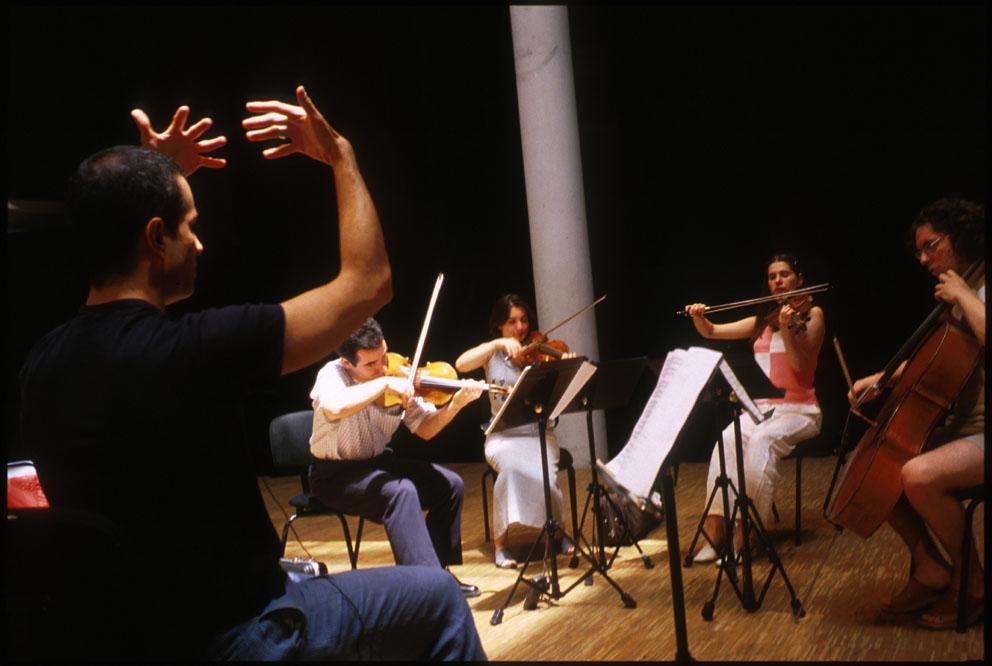
Master class de musique de chambre d'Antonello Manacorda
Cité du Livre © Elisabeth Carecchio
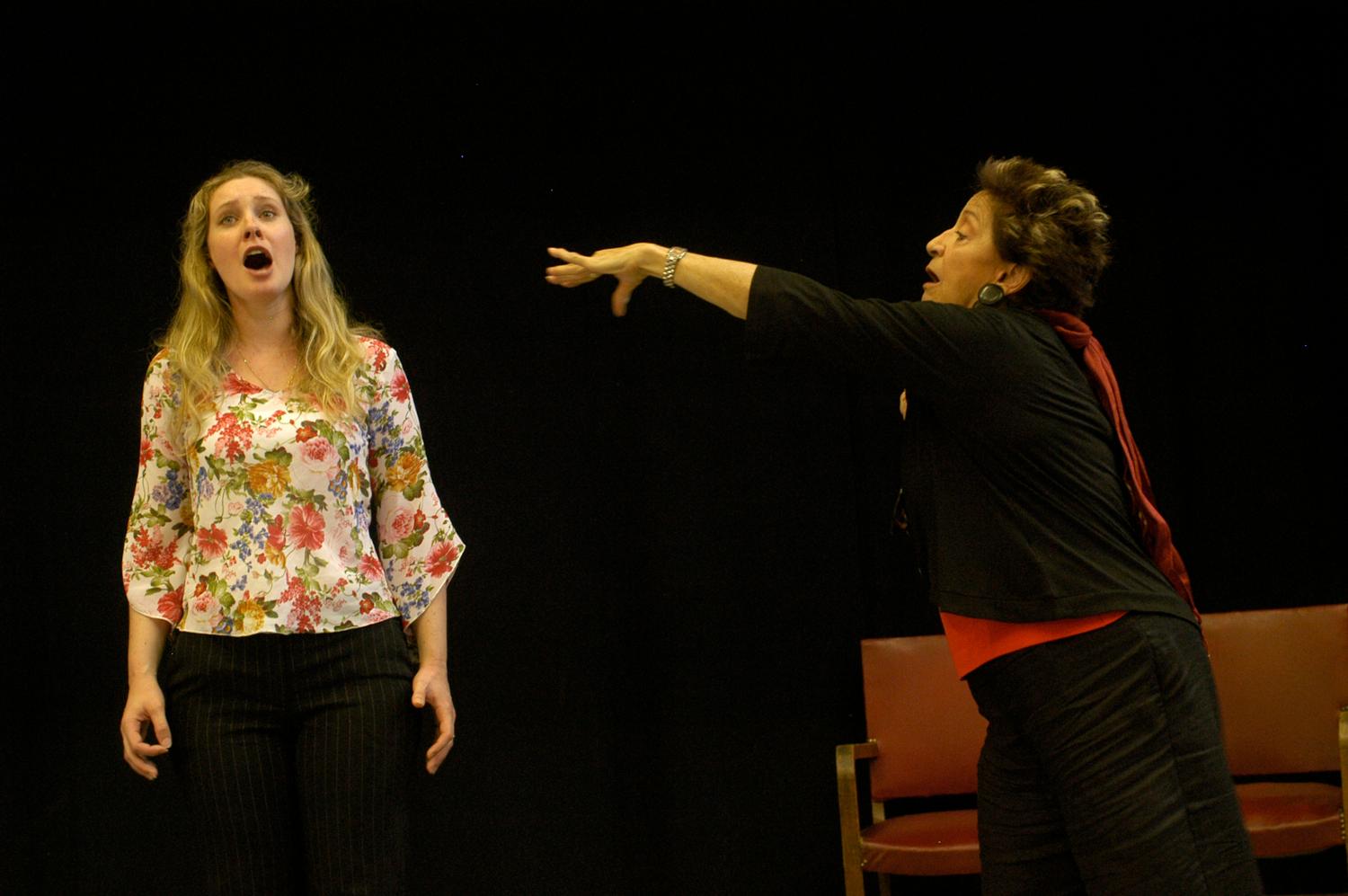
Master class de chant de Teresa Bergenza
Festival d'Aix-en-Provence 2005 © Elisabeth Carecchio
— THE ACADÉMIE: AN OPERA LABORATORY
It is clear that, from its very foundation, the Académie has produced a product – opera – whose identity mirrors the special subject of the Festival. However, when success came calling, the works created by the Académie were treated in the same way as Festival productions, which means that successful Aix productions were followed by international tours; regardless of whether a production was created entirely by the Académie, or Académie students were understudying official cast singers, or half the cast came from the Académie – every year an opera was performed with input from the Académie.
By way of example, to celebrate the 10th anniversary of the Académie européenne de musique, William Christie directed his Académie students in a concert performance of The Fairy Queen. This Purcell opera echoes one of the first Académie productions, Dido and Æneas, which continued to tour for several years. The Académie’s productions include Monteverdi’s Il ritorno di Ulisse in patria (2000), Rossini’s La Cenerentola (2000), and Janáček’s The Cunning Little Vixen (2002), which Antoine Manceau still remembers very clearly, as the stakes were so high. Many opera productions have been signed by the Académie. However, apart from the works that emerged from the composition workshops in 1998, the Académie did not actually commission an opera until 2010:
What was different just after my departure was that operas began to be commissioned; it was a real game-changer.
Interview with Antoine Manceau conducted in 2017 by Aurélie Barbuscia
— UNFORGETTABLE ENCOUNTERS
At the very heart of the Académie were the artistic encounters that Aix itself encourages, as well as those that emerge from the audition process. Following a meticulous pre-selection of the applications, Antoine Manceau and Eva Wagner would begin their pilgrimage across the capitals of Europe, making a special stop-off in New York. This ground work, conducted with the assistance of the conservatoires and opera studios, enabled them to select musicians and singers respectively, leading Antoine Manceau to remark with hindsight that “the Académie really does serve a purpose”, that it is not just about “making music for the sake of it”, but rather that “we really are providing the building blocks for a history of music in the making”. A large number of talented artists have been revealed during or following their stay in Aix, including the Modigliani Quartet, the mezzo-soprano Anna Stéphany, the soprano Sonya Yoncheva, the composer Jérôme Combier and the violinist Gregory Ahss.
As for the maestros, there have been some unforgettable characters who have left their mark on a generation of musicians and music lovers: the cellist Mario Brunello came to Aix, accompanied by his trailer; then there was the last concert of the Artemis Quartet before the replacement of the first violin who was forced to leave the ensemble for health reasons; and the poignant workshop on the body and space, led by Thierry Thieû Niang in collaboration with Patrice Chéreau. The classes and the concerts held at the Académie were sublime, as a roll call of its artists/educators make clear: the pianist Pierre-Laurent Aimard, the singers Edda Moser, Christa Ludwig, Gwyneth Jones, Rachel Yakar, Gundula Janowitz, Teresa Berganza, Gabriel Bacquier, Graham Clarke and Hans Sotin, and the Hagen and Tokyo quartets.
— PROMOTING OPERA CREATION
Since there is strength in unity, an initial network bringing together four renowned cultural actors was set up. The Académie européenne de musique, the Villa Medici, the Aldeburgh Festival and, later, the Verbier Festival met regularly to promote opera creation. The main purpose of the network was to co-commission new works, provide opera creation residencies and to encourage the circulation of artists between the network institutions.
The Académie européenne de musique was able to give pride of place to creation thanks to the immediate support it received from Sacem (Société des Auteurs, Compositeurs et Éditeurs de Musique). Revealing the richness and diversity of the contemporary repertoire, supporting contemporary composers and promoting contemporary creation: such was the mission of the Académie, which collaborated regularly with the SACD (Société des Auteurs et Compositeurs Dramatiques) to commission new works from emerging composers. These works were generally performed in a world premiere by artists from the Académie.
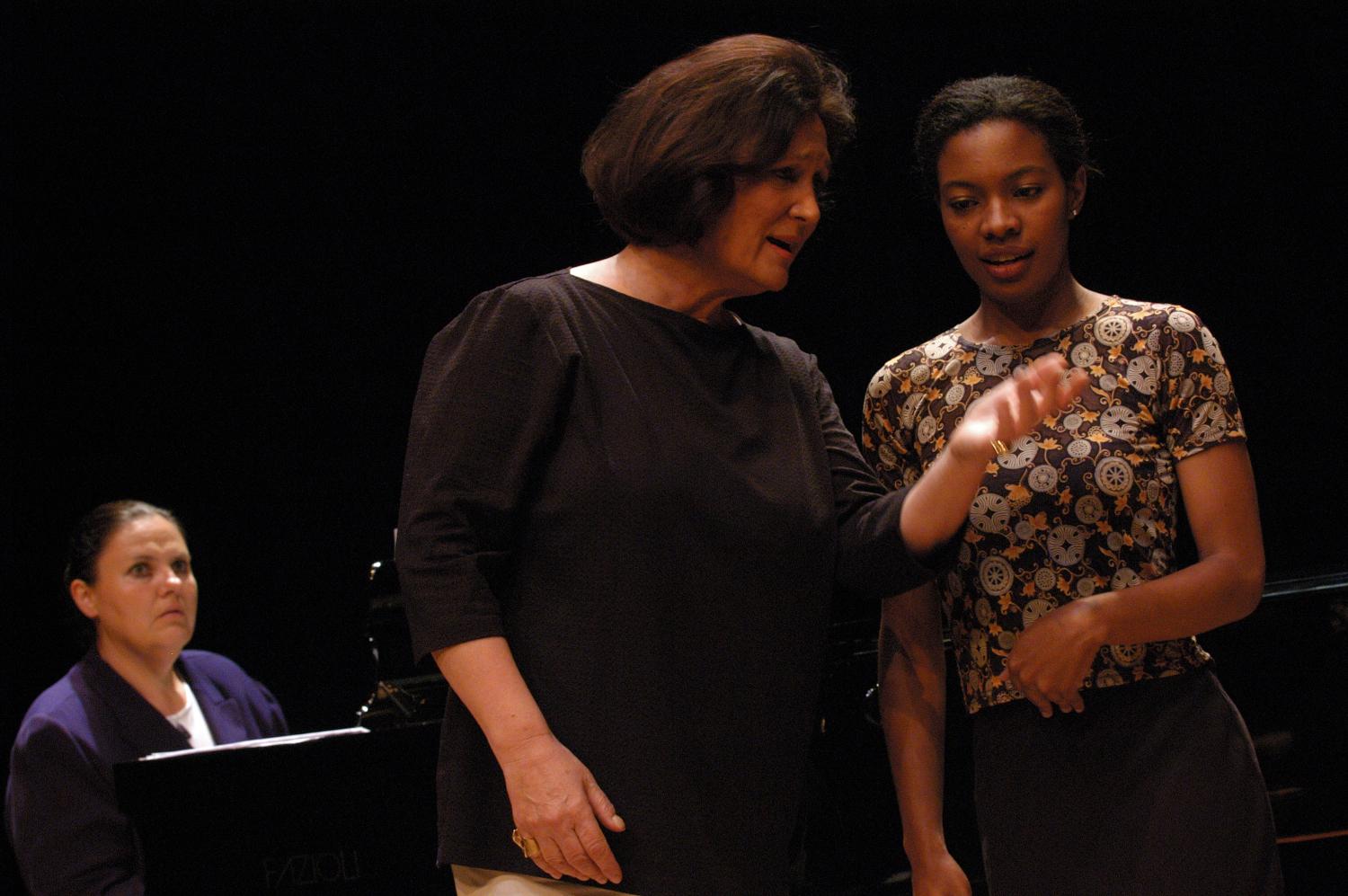
Master class de chant d'Edda Moser
Festival d'Aix-en-Provence 2003 © Elisabeth Carecchio
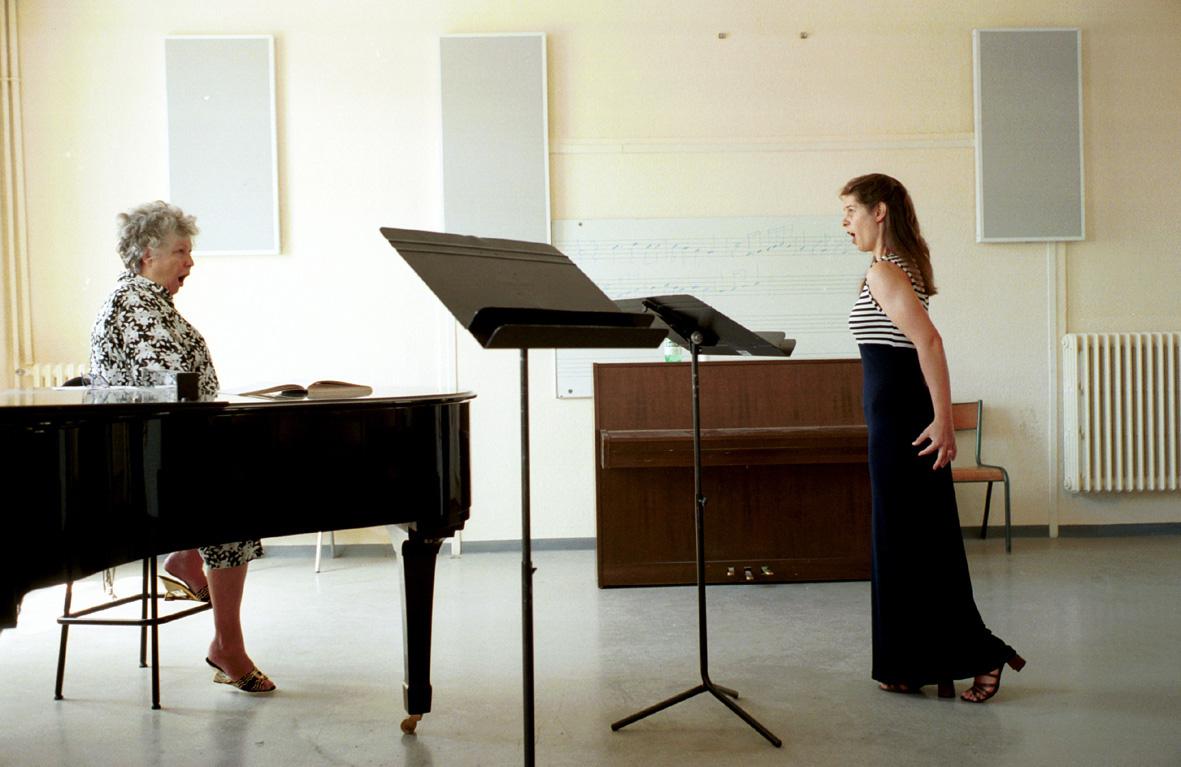
Master class de chant de Christa Ludwig
Festival d'Aix-en-Provence © Elisabeth Carecchio
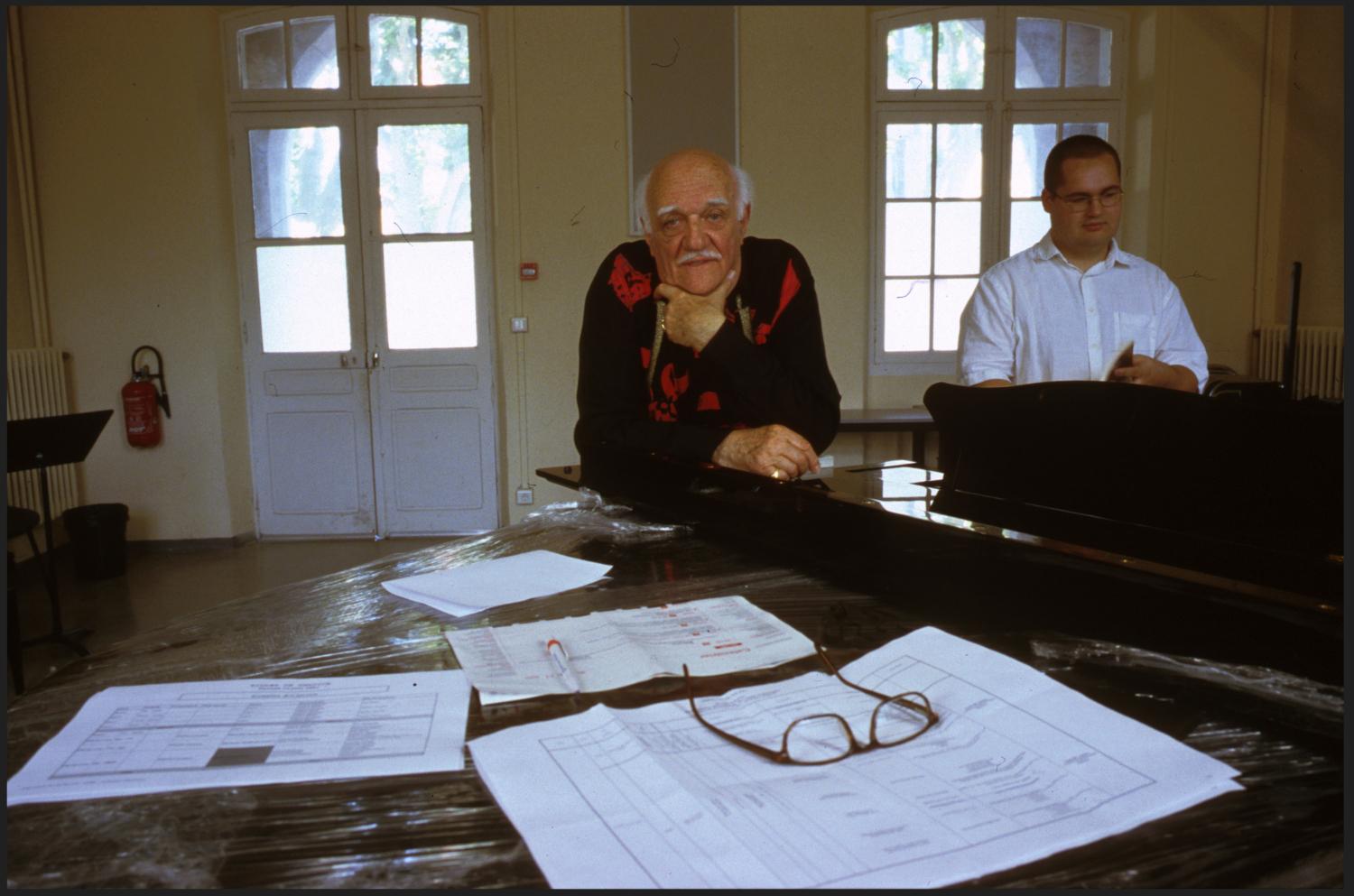
Master class de chant de Gabriel Bacquier
Festival d'Aix-en-Provence 2001 © Elisabeth Carecchio
— CRUCIAL PARTNERS
In 2002, Charles-Henri Filippi, a banker with a passion for music and art – CEO of HSBC France, Director of the Georges Pompidou National Centre for Art and Culture and long-standing sponsor of the Festival d’Aix-en-Provence – decided to support the Académie’s most talented performers. This initially involved recruiting the Académie’s most promising singers for a series of concerts in Corsica. Every summer, a lucky group of Académie members was invited to perform in Corsica at the end of their stay in Aix. Known as “Les Soirées lyriques”, these evening concerts came to be a highpoint of the Corsican summer. The Académie’s most promising talents began to be elevated to the rank of the HSBC Laureates from 2006, when the HSBC France Group joined forces with the Académie européenne de musique in Aix-en-Provence to nurture and support these young artists. Furthermore, at the end of each edition of the Festival, the artistic director would select a new intake of singers, a pianist and a chamber music ensemble. These HSBC Laureates would then build on the experience they had gained during the Festival, performing in recitals and concerts both in France and abroad.
The France Telecom Foundation, now called the Orange Foundation, has been committed to support the development of the European Music Academy of Festival d’Aix since its creation in 1998. The Academy aims at providing training and professional integration opportunities for talented young singers. In 2006, the Orange Foundation decided to redirect its support to the Festival by accompanying the implementation of educational and socio-artistic initiatives.
Since 2004, the La Poste Corporate Foundation has been a partner of the Académie européenne de musique at the Festival d’Aix, providing support in particular for the creation of performances based on the writings and correspondence of musicians. In promoting the written form of the language through the edition of correspondence, as well as all types of artistic events designed to bring writing and correspondence to life, the La Poste Corporate Foundation supported the Académie’s young talents whose creative work involved a blend of text and music.
2009-2018
2009-2018
2009-2018
2009-2018
2009-2018, Enlargement and diversity
Émilie Delorme has been the Director of the Académie européenne de musique of the Festival d’Aix-en-Provence since 2009, playing a key role in its expansion and in enhancing its international standing. The Académie has thus gradually emerged as a centre of excellence for spotting young talent, creators and performers.
Émilie Delorme and her team’s blueprint for the Académie – to increase openness to cultural diversity by encouraging intercultural dialogue; secure a stronger local presence; support creativity and innovation to meet the challenges of tomorrow, and make the handing-down of experience a natural corollary of excellence – was promoted passionately:
When you want to share music with as many people as possible, the first question that arises is the diversity of the audience. However, the fact is that the audience that frequents cultural institutions does not reflect the target audience of those institutions. Why is that? Because the artistic offering does not reflect the diversity of the population. [...] So, as soon as I was able to have some influence on the programme of events, I tried to take account of this diversity.
Alternatives théâtrales, interview with Émilie Delorme conducted by Leyli Daryoush in 2016
The Académie, for which artistic excellence becomes a prerequisite and diversity one of its key values, thus began to organise a whole host of activities, based around four main themes: voice, chamber music, creation and orchestra.
— THE MOZART RESIDENCY: AN INSTITUTION
The Académie offers vocal and performance training programmes designed to dovetail perfectly with the Festival d’Aix programme. Whilst pursuing excellence in vocal technique, the Académie also puts strong emphasis on stage work. Faithful to the Festival d’Aix tradition that Mozart is a must, the Académie’s voice section dedicates one of its residencies to the Austrian composer. An unusual aspect of this residency is that it is open to both singers and vocal coach pianists.
Mozart has always followed me. For a baritone, this is where we start, it’s what enables me to have the purest, healthiest technique. In this residency, we are in search of the purest Mozartian style. This enables me to add to my repertoire in a new and more precise way. It’s very interesting. It really is an added bonus for my training!
Mikhael Piccone, Mozart residency participant
Vocal coach pianists and talented singers who are keen to develop and refine their interpretation of the Mozartian repertoire know where to go knocking; the Académie’s door is wide open to them. Here they are offered an enriching and formative experience alongside great Mozart teachers such as Susanna Eken, vocal coach at the Royal Danish Academy of Music, who has been using a technical and physiological-based vocal method in a passionate approach to Mozart’s work since 2008. In addition to vocal coaching, this voice residency is complemented by the musical work of some brilliant vocal coach pianists, stage and/or choreographic work under the expert guidance of Leah Hausman, as well as work on diction with a language coach. Mozart residency singers come face-to-face with the public on a regular basis since some working sessions are open to everyone, and they also perform in concerts in Aix-en-Provence and its environs. Educational events are also organised with Passerelles, the Festival’s educational and socio-artistic departments. Académie students are free to attend the Mozart performances scheduled for the current edition of the Festival, where they might easily bump into one of the cast singers relaxing around the Archevêché. Perhaps one day their turn will come, as there is no shortage of ex-Académiciens who landed their first role at the Festival!
The voice component also offers a residency designed to advance the repertoire in connection with the Festival programme and to introduce young singers to the contemporary repertoire and opera creation. These singers have a privileged opportunity to meet the composers of our time and to discover creation through the composers themselves and their respective worldview.
Where the Festival d’Aix programme permits it (world premieres and/or rare works), the Académie frequently hires understudies for singers who, for various reasons, might be unable to make one or more performances or to take part in the tour of the production in question. During their stay in Aix, the understudies take an active part in the rehearsal process and prepare the role assigned to them. Their training in Aix, however, encompasses much more than the production itself, as these pre-professional singers are also required to follow masterclasses in the repertoire they are studying.
For example, in 2013, the young singers involved in Elena de Cavalli's production also explored other operas by the composer (La Didone, La Calisto and Il Giasone) under the benevolent aegis of the harpsichordist, Brazilian organist and pianofortist Nicolau de Figueiredo.
[...] being an understudy can also be an opportunity to tour with a production to the most prestigious houses, such as the Royal Opera House in London, where Written on Skin was performed this year. In the end, I didn’t go on stage, but it was an incredible opportunity just to be there and to work with George Benjamin and Katie Mitchell in one of the greatest opera houses in the world. And all thanks to the Académie!
Rodrigo Ferreira, counter-tenor, understudy in Thanks to my Eyes (2011) by Oscar Bianchi and in Written on Skin by George Benjamin (2012)
The understudies can receive a superb boost to their profile if they have to replace at short notice the singers they are understudying during the first performances, or when the production is on tour. For example, the mezzo-soprano Rebecca Jo Loeb, who was understudying Victoria Simmonds for the roles of Angel 2 and Mary in George Benjamin’s Written on Skin, eventually sang most of the performances for this 2012 creation. What an amazing opportunity for a singer in search of success!
— OFF TO A FORTISSIMO START IN CHAMBER MUSIC
Each year, the chamber music residencies play host to existing ensembles of various sizes. Supervised by outstanding tutors as well as passionate chamber musicians, the participants are also immersed into the very heart of the Festival d’Aix and its fertile terrain for a wide range of artistic projects. For these ensembles, who are preparing or just embarking upon their professional career, the tie-in with the Festival provides an outstanding showcase within their own musical landscape. They are encouraged to explore both the classical repertoire and contemporary music, interacting with contemporary composers. The residencies also offer an opportunity to nurture a taste for the transmission of experience, innovation, mediation and interaction with all types of audiences in the musicians.
— A TEACHER NAMED KURTÁG
The year 2009 was an exceptional one for the Académie européenne de musique in Aix-en-Provence. To lead the chamber music residency, it called upon none other than the Hungarian composer György Kurtág – a living monument! He was accompanied by the violinist Gabor Takácz, who also taught some classes that bordered on the sublime.
Kurtág is coming to France for the first time. He is famous for his work and chamber music masterclasses. The Modigliani String Quartet (2007 HSBC Laureate) speak of their experience with him as transformative. Kurtág is interested in every note and every space between the notes. We have been told that this is the last time he will ever teach, and that he has chosen Gabor Takácz as his musical heir.
Émilie Delorme, La Marseillaise, 2 July 2009
After dispensing advice to the young instrumentalists of the Académie, György Kurtág gave a recital together with his wife – a unique moment according to Chantal Cazaux, music critic of Avant-scène Opera:
[…] the stage gave way to the epitome of chamber music as experienced by the family, a smiling osmosis of bodies and souls: accompanied by their son, György Kurtág Junior, the composer and his wife Márta offered a programme of pieces for upright piano with damper pedal, sometimes for four hands, sometimes for two. To see from behind this octogenarian couple with their 62 years of history and musical partnership sharing a stool and a keyboard in a sweet alchemy of exchanged glances, gentle swaying and infinite discernment was to witness the act of making music in its most tangible dimension of humanism and tenderness. [...] Having encored Bach rather than themselves, the Kurtágs disappeared behind the scenes like two sparrows, leaving us dreamers with the impression that we had touched some form of eternity for a moment.
Some of the great musicians who eventually led the chamber music residency include Andràs Keller, Jonathan Harvey, Simon Bernardini, David Alberman, Éric Le Sage, Jean-Guihen Queyras, Tabea Zimmerman, etc.
— A CATALYST FOR CREATION AND A SPOTTER OF CREATIVE TALENT
The Académie places great emphasis on creation, as witness the significant number of Académie commissions that have led to a world premiere. It should be remembered that many of these works would not have seen the light of day without support from Sacem. These commissions offer a way to support the residency’s young composers while giving them time to familiarise themselves with new languages. Some of them have never composed for the voice, or may feel the need to develop their vocal writing, get to grips with theatricality or deal with a textual support – all of which are stages in the opera creation process. Others benefit from exchange and experimentation sessions with chamber music ensembles, and are thus able to hone their language together with the instrumentalists. Whatever the modus operandi, this creation process helps to strengthen the bonds between today’s performers and creators.
In addition to the focus on contemporary music and innovative artistic forms in the singing and chamber music residencies, an Opera Creation Workshop (AOC), attended by young creators from around the world, is offered during the Festival period. The contribution of the SACD is crucial, here. The Opera Creation Workshop aims to encourage debate and shared experimentation around the creation of new artistic forms, while stimulating interdisciplinary and intergenerational dialogue. This vibrant context gives rise to many innovative projects and successful collaborations. The Creation and Innovation Workshops (ACI) provide an opportunity to present audiences with new forms of entertainment. At the end of the performances, the audience is invited to interact with the creators and the performers. By participating in this way, the audience plays an active part in shaping the operatic forms of the future.
Many famous artists/educators have run and tutored the Creation workshops: the composers Michael Jarrell, Laurent Dailleau, Manfred Trojahn, George Benjamin and Ana Sokolović; dramaturges Martin Crimp, Willem Bruls and Klaus Bertisch; the composer and conductor Peter Eötvös; stage directors Michael McCarthy, Daniel Jeanneteau and Katie Mitchell. Although the creation and presentation of new productions is not the main purpose of these Creation Workshops, some have emerged from the meeting of young artists in Aix and have been completed thanks to the resources provided by the Festival and the discussions carried out within the Académie. Examples include Thanks to My Eyes by Oscar Bianchi, to a libretto by Joël Pommerat (2011); the opera Le Premier Meurtre by Arthur Lavandier, created at the Lille Opera (2016); The House Taken Over, composed by Vasco Mendonça and directed by Katie Mitchell (2013); Hidden in Plain Sight, a musical walkabout by Aaron Einbold and Jude Christian (2016).
The Festival d’Aix-en-Provence also promoted a series of workshops around the status of female creators in the world of the opera, which was launched in 2016. The first one, organised by the Académie and supervised by the director Katie Mitchell, was held in London. Bringing together female conductors, stage directors, authors and composers, the workshop aimed to identify the difficulties faced by women in the field of opera creation. For the second instalment, building on a study entitled “Where are the women? Still not here!” conducted by the Société des Auteurs et Compositeurs Dramatiques (SACD), the Festival d’Aix organised a study day in Paris on the theme of “Female creators in the live performance industry”, in collaboration with the SACD and the British Council. In June 2017, a further workshop held by the Académie du Festival d’Aix helped to lay the foundations for inter-professional dialogue on the subject of female opera creators.
— THE ACADÉMIE: A BREEDING GROUND FOR STARS
It is impossible to mention all of them as so many have seen their name at the top of the bill. If we look closer, we can see a small star next to their surname. It is both a sign of their participation in the Académie du Festival d’Aix-en-Provence and an indication of what they are destined to become: rising stars in the world of opera singing. Having been thrust to the front of the stage, their career unfolds in a context that far surpasses the national dimension. They are a new generation of talented singers, at the heart of a changing and competitive world of opera. It seems incredible to think that some of the leading names in their respective fields were once students, and here at the Académie: Mari Eriksmoen (soprano), Julie Fuchs (soprano), Julien Behr (tenor), Sabine Devieilhe (soprano), Rodrigo Ferreira (countertenor) and Andreas Wolf (bass), to name just a few of the singers. Stage directors such as Vincent Huguet who, having taken part in the Opera in Creation Workshop in 2011, went on in 2015 to direct Encor sur le pavé sonne mon pas nocturne (production supported by La Poste Corporate Foundation), and will be directing Dido and Æneas in 2018; composers such as Charlotte Bray, Arthur Lavandier, Vasco Mendonça and ensembles such as the Tana and Arod Quartets.
Most of these artists are HSBC Laureates of the Académie, including Sabine Devieilhe, Julie Fuchs, Léa Trommenschlager and the Giocoso, Van Kuijk, Zaide and Navarra quartets, who received specific support to give them the profile they deserve, with concerts throughout France and abroad and, for some of them, with recordings. Every year since 2006, HSBC France has supported a new intake of Laureates. Some aspects of the programme have been given extra focus over time: for example, the Laureates are expected to perform regularly in Aix both in June and in July, they go on tour in France and abroad (Hong Kong, Chile, United States), and the long-term partnerships with the Philharmonie de Paris and the Lille Opera have been strengthened. In addition, Alpha Classics (Outhere Music) has released four recordings by HSBC Laureates. This series of records is just one of the many ways this new generation of artists can be promoted.
- Black Is the Colour: Anna Stéphany (mezzo-soprano), Labyrinth Ensemble (February 2018)
- Mozart: Quatuor Van Kuijk (September 2016)
- Grieg Wolf Strauss Grøndhal: Mari Eriksmoen (soprano), Alphonse Cemin (piano) (February 2016)
- Nocturnes: Rupert Charlesworth (tenor), Edwige Herchenroder (piano) (January 2015)
One of the Académie’s earliest champions, the Amis du Festival association continues to welcome students and management teams from all the Académie residences with the same passionate generosity as ever. The city’s music-lovers come to meet the young artists and help them discover the treasures to be found in Aix and its surroundings. The close ties woven between the young artists and the Friends of the Festival sometimes lead to beautiful friendships. The Amis du Festival association awards two prizes to the Académie’s outstanding artists of the year. In addition, the presentation of the annual Gabriel Dussurget Prize for an artist discovered by the Académie remains a highlight of the Festival period.
— THE ACADÉMIE TURNS TOWARDS THE MEDITERRANEAN
Since 2009, the Académie has increasingly pursued a policy of openness towards artists from the countries around the Mediterranean basin. This is highlighted in its programming schedule, which is enriched by creators and performers from a wide variety of backgrounds with a blend of music from the written and oral tradition, both formal and improvised. The aim is not just to establish a productive intercultural dialogue, but also to ensure it endures by adopting a long-term approach, working with several artists in order to build a faithful relationship together.
— FROM COLLABORATION TO INTEGRATION: THE ORCHESTRE DES JEUNES DE LA MÉDITERRANÉE
Created at the behest of the Provence-Alpes-Côte d’Azur Region and the Ministry of Culture, the Orchestre des Jeunes de la Méditerranée (OJM) has been part of the Mediterranean cultural scene since 1984. Recruited by audition from the conservatoires and youth orchestras of several countries around the Mediterranean, young instrumentalists are given the opportunity to study alongside seasoned musicians and experience their first concert performance. The OJM’s use of a shared experience to promote movement for Mediterranean artists is a concrete example of the answers that music can provide to address the identity-based tensions to which the world is currently prey. Exchange and cooperation initiatives have been developed with some twenty countries bordering the Mediterranean.
Since 2010, the Festival d’Aix-en-Provence and the OJM have been working to establish an Orchestra Académie, in collaboration with the London Symphony Orchestra in residence at the Festival. In addition, the OJM’s summer session is held annually under the direction of a celebrated conductor and a team of LSO tutors. The symphonic session of the OJM is designed to convey the pleasure of performing the symphonic repertoire for full orchestra. François-Xavier Roth, Alain Altinoglu, Carlo Rizzi and Sir Simon Rattle – to name but a few – have all stepped up to the podium to conduct the OJM.
In 2014, following four years of collaboration and at the request of the public authorities, the OJM became part of the Académie européenne de musique, which then changed its name to the Académie du Festival d’Aix in order to reflect its broader geographic and cultural ambition. The merger, which has enabled the OJM to fulfil its duties and its objectives, was designed to give fresh impetus to intercultural creation projects and enable the artistic and distribution budgets to be increased. Mécénat Musical Société Générale, Société Générale’s musical sponsorship program, has been lending its support to the Orchestre des Jeunes de la Méditerranée since 2014, when the OJM became one of the Festival’s summer residencies.
What brings them together? Music. But, above all, the Mediterranean. They are Tunisian, Spanish, Turkish, Syrian, Palestinian, Italian, Egyptian, Israeli or Croatian. An orchestra made up of young people from all the Mediterranean countries. An orchestra with a threefold cultural, geographical and confessional diversity.
I/O Gazette, 15 July 2016, Chrysoline Dupont
In 2015, the intercultural creation session was set up as a complement to the OJM symphonic session. The aim was to develop new musical forms, developed collectively by musicians from various artistic, aesthetic and cultural backgrounds. The addition of the intercultural creation session to the OJM programme was intended to preserve and renew a cultural heritage that springs from a common foundation with a wealth of crossovers and influences, to stimulate a creative process through productive intercultural dialogue, and to promote the transmission and reappropriation of the Euro-Mediterranean musical heritage for future generations.
I met some excellent musicians with a lot of interesting experience; the opportunity to play with them made me more passionate to continue and learn from everyone and to play as best as I can. A great experience was also getting in touch with the Intercultural Session group. I got to know different cultures, their music and instruments.
Samantha Skorja, aged 20, from Slovenia, clarinetist who took part in OJM Symphonic session
In addition to the symphonic concerts and intercultural creation concerts scattered throughout each edition, the OJM has been actively involved in two of the Festival’s large-scale participatory projects: The Monster in the Maze in 2015 and Orfeo & Majnun, scheduled for 2018.
The Total Foundation, which usually supports Passerelles’ educational projects, has decided to provide special support to the creation of the participatory opera Orfeo & Majnun in 2018. They had similarly supported the creation of the opera The Monster in the Maze in 2015, bringing together amateur and professional musicians.
Under the guidance of conductor Sir Simon Rattle, Jonathan Dove’s participatory opera The Monster in the Maze was commissioned by the Berliner Philharmoniker, the London Symphony Orchestra and the Aix-en-Provence Festival, bringing together some professional LSO musicians, the Orchestre des Jeunes de la Méditerranée, as well as the amateur choirs of the Festival’s educational and socio-artistic departments, Passerelles. Following two semi-staged versions at the Berliner Philharmoniker and the Barbican Centre in London, the Grand Théâtre de Provence hosted the first stage version of the work. Inspired by the myth of Theseus and the Minotaur, Alasdair Middleton’s libretto is a wonderfully successful adventure opera.
Conceived by the artist Airan Berg, Orfeo & Majnun is the 2018 edition’s multidisciplinary, participative project. This creation explores the many facets of two founding myths of Western and Eastern civilisations: Orpheus & Eurydice and Layla & Majnun. Blending Western and Eastern influences, the score by composers Dick van der Harst, Howard Moody and Moneim Adwan, will be performed in English, French and Arabic by four young soloists, accompanied by musicians from the OJM, professional musicians and 150 amateur choristers. Benefiting from the support of the European Union’s Creative Europe programme, this is a co-commission and co-production of the Festival d’Aix-en-Provence (France), La Monnaie/De Munt (Belgium), Valletta 2018 Foundation (Malta), Wiener Konzerthausgesellschaft (Austria), Krakowskie Biuro Festiwalowe (Poland), Operadagen Rotterdam (Netherlands), Santa Maria da Feira (Portugal).
This opera benefits from the outstanding support from The Eloise Susanna Gale Foundation, the Bettencourt Schueller Foundation and the Fonds Chœur à l’ouvrage.
— A TASTE FOR TRANSMISSION OR THE CREATION WITH AN OUTREACH PROGRAMME
The quest for excellence only makes sense if it is accompanied by a desire to hand down experience to the next generation. This is one of the reasons why the OJM musicians and other pre-professional musicians are introduced very early on to music education training alongside the symphonic session. The year 2010 marked the arrival of a session specifically tailored to musicians in outreach skills. The Académie offers future professional musicians with an aptitude for teaching a training course on music transmission, initiation and for young audiences and so-called “distant” or “neglected” audiences. Between 2010 and 2013, when the London Symphony Orchestra was in residence at the Festival d’Aix-en-Provence, several educational projects were launched thanks to the impetus of the Académie, the Festival’s educational and socio-artistic departments, Passerelles, and LSO Discovery – the education department of the LSO.
The offer was soon extended to singers. Musicians and singers in outreach skills were thus able to acquire techniques and develop mediation tools before implementing them on the ground. The target audiences for the Passerelles educational and socio-artistic department began to take part in the creative and participative projects that the musicians in outreach skills designed as part of their training. And the Académie family continued to grow...
Everyone can enter the world of music, the world of opera. The role of relay musicians is to bring this idea to life.
Mark Withers, artistic and educational coordinator of LSO Discovery, tutor of the outreach programme
— TAILOR-MADE SUPPORT
Cultural entrepreneurship workshops, which were set up in 2015 in partnership with the Philharmonie de Paris, round off most of the training programmes. In a cultural sector weakened by the constant questioning of economic models, its stakeholders need to be endlessly inventive. Hence the decision to focus on certain innovative entrepreneurial models, while bringing practical, concrete information to the attention of artists who are likely to assume the role of cultural entrepreneurs at some point during their career. Equipping them to cope with the digital changes that impact on their individual practice, on their means of communication and their working tools are also at the heart of this training. Furthermore, the chamber music residency ensembles, OJM musicians and enoa artists are given precious advice on career and project development. This specialised expertise covers all the practical aspects that individual musicians and ensembles are likely to have to deal with (self-promotion, development, distribution...).
— DID SOMEONE SAY “ACADÉMIE PRODUCTIONS”?
The Académie produces operas and productions that are an integral part of the Festival d’Aix-en-Provence programme schedule. Each year, one or two productions involve young artists at the beginning of a promising career. This enables them to collaborate with some of the great artists of today, be they conductors, singers or stage directors. During their residency in Aix-en-Provence, these young artists are given exclusive coaching and are included in the initiatives carried out by the Académie. The productions then tour throughout Europe, which enables the artists to gain hands-on stage experience. For some of these productions, workshops are held upstream, since they are designed to give young artists an opportunity to be part of the process of creating and producing an opera form start to finish. This was the case with Handel’s Acis and Galatea in 2011. The young artists were involved in recreating this baroque work with choreographer Saburo Teshigawara and conductor Leonardo García Alarcón. The workshops enable young singers to become familiar with a new repertoire or, as part of a creation, to “get to know” the score.
Meeting other young singers of my age from around the world opened my eyes to the reality of our professional environment: the major conservatoires only train a small minority of musical talent in Europe. Working side-by-side with young talented artists, all multilingual and full of enthusiasm, encouraged me enormously and pushed me to give my very best.
Julie Fuchs, French soprano, title role in Acis and Galatea, Festival d’Aix-en-Provence, July 2011, and a Mozart residency participant in 2009
— THE ACADÉMIE ON THE HISTORIC STAGE OF THE COUR DE L’ARCHEVÊCHÉ
Since its creation in 1998, three Académie opera productions have been performed on the historic stage of the Cour de l’Archevêché. The most recent marks the 20th anniversary of the Académie and the 70th anniversary of the Festival d’Aix.
Stéphane Braunschweig’s highly poetic, pared-back production of The Magic Flute, designed at the heart of an emerging Académie and presented in 1999 at the Grand Saint-Jean, was revived a few years later in Aix-en-Provence, performed this time in a somewhat less pastoral décor, though still outside: this time the Mozartian singspiel was presented at the Théâtre de l’Archevêché. Philippe Jordan conducted the orchestra of the Opéra national de Lyon, Stéphane Degout gave us a comical, truculent Papageno, while Natalie Dessay bid farewell to the role of the Queen of the Night.
[...] Without a doubt the best production of the Académie européenne, the child prodigy of the Festival, since its foundation in 1998.
La Libre Belgique, 2001
As part of the 2009 edition of the Festival d’Aix-en-Provence, whose theme is the relationship between opera and myth, the Académie européenne de musique presented Offenbach’s light-hearted Orpheus in the Underworld. In the iconic setting of the Cour de l’Archevêché, some young lyric hopefuls set out to prove themselves alongside famous artists such as director Yves Beaunesne and conductor Alain Altinoglu. A who’s who of French singers, which the Académie had been quick to seek out, performed against the backdrop of this four-storey bourgeois residence: Mathias Vidal made a remarkable entry as Aristaeus, and Emmanuelle de Negri, playing Cupid, charmed the audience with her “couplet des baisers”.
To mark the 70th anniversary of the Festival, the 20th anniversary of the Académie and Bernard Foccroulle’s last year at the head of the Festival d’Aix, the 2018 edition offers a masterpiece of Baroque music: Purcell’s Dido and Æneas. This new production has been placed in the expert hands of the Académie, and will be performed in the prestigious setting of the Théâtre de l’Archevêché. The Pygmalion Orchestra and Choir will be supporting a cast of Académie singers and emerging director Vincent Huguet will be staging the work. A prologue written specially for the occasion aims to tell the full story of what happened before Dido arrived in Carthage. This story provides an echo of current events, reflecting the violence experienced by some women, but also tells stories of wandering, of exile, of all those who go to sea in search of a better future. We discover that Dido and Æneas is a story that was born in the Mediterranean, which makes the fact that the production has been placed under the umbrella of the Académie all the more significant.
— FORGING AND STRENGTHENING EUROPEAN BONDS: THE BIRTH OF ENOA
If enoa had a motto, it would undoubtedly be “United in strength”. It was in 2009, when Europe was grappling with a major economic crisis, that the brilliant idea of creating a European network of opera academies emerged. Embraced enthusiastically by all the institutions of the opera world that had been consulted (academies, festivals, foundations, opera producers), the idea ended up taking shape and a name in the form of an acronym: enoa (european network of opera academies). And so it was that the Académie founded a network of eleven European opera institutions whose main tasks involve organising training workshops, promoting the mobility of young artists and encouraging opera creation through co-commissions and European co-productions. Support from the European Commission’s Culture Programme from 2011 enabled it to develop a five-year programme covering these aspects. This artistic community – a breeding ground for creativity, innovation and excellence – has been able to engage in brainstorming around the future of opera, while playing an active part in building that future.
Training is one of the pillars of the network. A diverse range of development workshops is offered all over Europe to help launch the careers of young artists and creators. The environment is extremely stimulating; a whole host of celebrated artists including Natalie Dessay, Helmut Deutsch, Peter Eötvös, Lawrence Foster, Barbara Hannigan, Martin Crimp and José van Dam have taken part in these activities. And face-to-face communication never fails to work its magic... careers are launched, and experimental artistic projects can finally emerge.
After the enoa workshop in Amsterdam, the conductor invited me to sing a small role in Rigoletto abroad! This is one of the reasons why enoa is so important to us.
Michael Wilmering, baritone
I was able to create new pieces in a stimulating environment in which I was free to experiment and push things to the limit. My discovery is that there are no limits!
Jamie Man, composer
During the first five years, seven productions, including three new creations, were launched by the network.
I hope that what the enoa network does for and with young artists becomes the norm for networks and initiatives of this kind ... I have every reason to believe that a large number of collaborations and projects that are linked to enoa in one way or another will be performed on European music stages in the near future.
Vasco Mendonça, composer of the opera The House Taken Over (2013)
Driven by a constant quest for artistic excellence, enoa explores new formats that are able to meet the constraints of mobility and production cost reduction. Far from going unnoticed, most of these artistic projects have aroused, if not enthusiasm, at least the curiosity of the press. By way of example, the Trauernacht production, performed in France and in other European countries in 2014, was a real media success.
In terms of mixed media, Trauernacht is a fascinating prototype: it is not an opera, it is not a play, it is not a concert; it is a hybrid work, a visionary experimental form of singular power. Although its ingredients may not be original, it is the way they are combined and cooked that produces a unique dish.
Libération, 15 July 2014
Building on the success of its first instalment, the enoa network has been granted renewed support from the European Union’s Creative Europe programme for the period May 2016 to May 2020, enabling the network to renew its commitment to pre-professional artists by launching a new Young Opera Makers programme for performers and creators.
— AIX EN JUIN: THE PRELUDE TO THE FESTIVAL
Every year since 2013, Aix en juin has provided a joyful preamble to the Festival d’Aix-en-Provence, bringing together a large, enthusiastic audience around a programme of events as rich as they are varied (concerts, recitals, masterclasses open to the public, opera rehearsals, etc.). Around sixty cultural and musical events are held in the city of Aix-en-Provence and the various municipalities in the region. It is thanks to Bernard Foccroulle, always keen to open the Festival up to an ever wider, more diverse audience, that this vibrant prelude was born. Aix en juin also focuses on opening up to all kinds of music, as well as on outreach activities in the form of music awareness programmes that can appeal to all audiences.
Events are either free or subject to a small charge, and enable audiences to discover the Académie’s young talents alongside famous artists, as well as some inventive proposals concocted by Passerelles, the educational and socio-artistic departments. The nominative PASS gives access to all the public events organised by the Académie du Festival d’Aix and to most of the Aix en juin events, as well as to preferential rates on the full programme of concerts. To close Aix en juin and open the new edition of the Festival, a big free concert called PARADE[S] is held on the Cours Mirabeau in front of an audience of over 5,000 people.
— AND THEN CAME MEDINEA
In addition to the development of the Orchestre des Jeunes de la Méditerranée sessions, from 2011 there was talk of strengthening the links between the Festival – firmly rooted in a region conspicuous for its great cultural and ethnic diversity – and the countries of the Mediterranean basin by bringing together the partners from around the Mediterranean. Spurred on by the Festival d’Aix, a network began to take shape. Active in 17 countries of the Euro-Mediterranean region, it took the name Medinea (Mediterranean Incubator of Emerging Artists) in 2015. Coordinated by the Festival, the Medinea network is made up of cultural organisations from the Euro-Mediterranean area (higher education institutes, cultural centres, festivals, music markets, venues) that train musicians and produce and disseminate artistic projects. The network’s main role is to support emerging artists engaged in innovative projects with guidance for the design, delivery and dissemination of their artistic projects. The network is also keen to develop exchanges between cultural stakeholders, promote the circulation of artists around the Mediterranean basin and in Europe, and encourage debate around artistic creation in the region. The network’s partners are fully committed to creating new spaces for cross-cultural creation, and to developing intercultural creation sessions as much as possible. One of the projects promoted by Medinea was the Cairo Jazz Station. A product of the intercultural session and discovered through the Medinea network, the four musicians from Egypt, Turkey, Portugal and Italy came together to share their experience and build a common musical identity.
We are all musicians with a strong musical background and a strong musical sensibility and tradition, but none of us wants to be content with that. On the contrary, we are all keen to push the boundaries, to go beyond our own knowledge to meet the other. [...] In Cairo, we found a very fertile environment to work on building our artistic identity.
Loris Lari, double bass player, Cairo Jazz Station
World premieres commissioned by the Académie
2018
Ondřej Adámek, Seven Stones – a capella opera
Bastien David, World premiere for string quartet
Charlotte Bray, World premiere for viola solo
Arthur Lavandier, World premiere for voice and piano
Diana Soh, World premiere for quartet
Samy Moussa, World premiere
2017
Ondřej Adámek, Throwing – vocal ensemble and percussion
Camille Pepin, Lyrae – string quartet, harp and percussion
Sivan Eldar, The White Princess – two sopranos, percussion and electronics
Matthew Herbert, Requiem – string quartet and electronic music, live creation
Raphaël Languillat, Sauve, Éternel (Ps. 12) – mezzo-soprano, baritone, harp and two singing bowls
Oliver Leith, Folk’s Questions – tenor, bass-baritone and piano
Oliver Leith, The Bow – electronics
Robert Pascal, Obscure lumière – string quartet
2016
Moneim Adwan, Kalîla wa Dimna – opera
Benjamin Attahir, Asfar – trio with piano
Nuno da Rocha, Ecce Puer – mezzo-soprano, baritone and piano
Benjamin de la Fuente, Ricochets – String octet, drums and tape recording
Sébastien Hervier, D’abord, la fin (donc) – drums and tape recording
Jug Marković, Ultraterreno – soprano, mezzo-soprano and piano
François Meïmoun, Tsimtsoum – quintet with 2 violas
Rene Orth, A Dialogue between Death and Youth – soprano, baritone and piano
Luca Vago, Dredd – string quartet
2015
Hye-Yeon Choi, st.ring’qu.arte2t – string quartet
Andrzej Kwiecinski, Per non pensare – mezzo-soprano, piano (two pianists)
Thomas Lacôte, Torpeurs – soprano, baritone, string quartet
Hye-Yeon Choi, No Nonsense – soprano, baritone, piano
Samy Moussa, The Sick Rose – tenor, piano
Alexandre Ouzounoff, Vent noir – mezzo-soprano, piano
Sarah Lianne Lewis, Relativity and Revelation – mezzo-soprano, piano, Tibetan bowls
Sarah Lianne Lewis, Although you sit in a room that is gray – baritone, piano
2014
Ahmed Essyad, Quatuor avec voix – string quartet and mezzo
Sebastian Rivas, Stains in the Carpet – quintet with double bass
Francesca Verunelli, Sky & Decaying Sinusoids – double base and electronics
2013
Vasco Mendonca, The House Taken Over – opera
Laurent Durupt, Super8 – string octet
François Meïmoun, Untitled - Selon Pollock – string quartet
2012
Mauro Lanza, Der Kampf zwischen Karneval and Fasten – string octet
Malik Magic, Empathie force – piece with improvisation for string quartet, flute and electronic musician in real time
Gilbert Nouno, Punkt! – string quartet, mezzo and real-time electronics
2011
Yann Robin, Crescent Scratches – string quartet
Karol Beffa, Mes Heures de fièvre – trio for voice, viola and piano
Francisco Coll Garcia, Sguardo verso l’interno – quintet with clarinet
Zad Moultaka, Maadann – eight voices, piano, cimbalom and percussion
2010
Oscar Strasnoy, Un retour – opera
Mark André, iv 8 – string trio
Jonathan Harvey, Songs and Haiku – soprano and piano
Felix Ibarrondo , Botsbi - 3 miniatures – 2 mezzos, 2 sopranos, conductor
Betsy Jolas, Ruht Wohl – for piano and viola
Piotr Moss, Lien entre les jours, d’après un poème de Miriam Van Hee – quartet and voice
2009
Francesco Filidei, Concertino di Aix – wind quintet, string quartet and piano
2008
Christian Bertrand, Satka – flute, clarinet, violin, cello, piano and percussion
2007
Franck Bedrossian, Tracés d'ombres – for string quartet, (revision date: 2007)
2006
Jérôme Combier, Noir azur – string trio
Julien Dassié, Œuvre pour quatuor à cordes, mezzo-soprano et baryton – string quartet, mezzo-soprano and baritone
2005
Bruno Mantovani, Blue Girl with Red Wagon – string quartet and piano
2001
Georges Aperghis, Profils – for cello and zarb
1999
Maresz Yan, Festins – 12 percussions
1998
Vsevolod Chmoulevitch, Le Rossignol et la Rose – lyrical work
Jonathan Golove, Moisson Rouge (Red Harvest) – lyrical work
Juha T. Kostinen, Madame de Sade – lyrical work
Alexandraos Markeas, Rondo Notturno (Secret Garden) – choreographic work
Juan Jose Eslava, choreographic work
The Académie’s venues over the years
Throughout its twenty years of existence, the Académie du Festival d’Aix has occupied a plethora of exciting venues. While it has always been keen to exploit iconic or unusual locations in the city of Aix-en-Provence, it has also been committed to the surrounding towns and villages, performing chamber music concerts in partnership with the metropolitan area, singing concerts in partnership with the department of the Bouches-du-Rhône, and OJM concerts in partnership with the PACA Region.
The rehearsal locations for most of the Académie’s classes include: the Collège Mignet; the Cité du Livre Auditorium; the Théâtre du Jeu de Paume; the Courtyard of the Hôtel de Ville; the Grand Théâtre de Provence; the Darius Milhaud Conservatoire; the Courtyard of the Hôtel Maynier d’Oppède.
Author: Aurélie Barbuscia
Interviews with Béatrice de Laage, Antoine Manceau and Émilie Delorme conducted by Aurélie Barbuscia
Since 2019
Since 2019
Since 2019
Since 2019
In 2023, the Académie du Festival d’Aix is celebrating its 25th anniversary. But this edition is more than just an anniversary: it marks an important milestone in the history of the Festival, and the role the Académie plays among other academies in France and abroad, as well as within the Festival itself.
When it was created in 1998, the Académie was part of the dynamic rebirth of the Festival d’Aix. It was one of the key changes that transformed Aix-en-Provence into a backdrop for contemporary opera and the transmission of traditions. Year after year, the Académie has defined itself in line with the Festival's programming – in this way, it is now a part of the artistic management of the Festival d’Aix – and through those who created and led it. However, it is also characterised by its ability to address various challenges that arise in the sector. When the pandemic forced the Festival to be cancelled in the summer of 2020, the Académie managed to maintain most of its activities by reshaping them in a way that accelerated the institution’s development and that redefined its core principles: supporting research and artistic development; fostering creativity; generating opportunities; promoting cultural, generational, social and disciplinary diversity; and envisioning new horizons for the future of opera.
Paul Briottet
Académie and Concert Programme Deputy Director
ACADÉMIE ARTISTS
The 77 artists invited to the Académie in 2023 come from 22 different countries and represent 14 different professions. In addition to opera singers, instrumentalists and professionals in the fields of musical, theatrical and literary creation, which the Académie has supported since its inception, new professions have now been incorporated: i.e. producers, choreographers, film directors, set designers, and costume designers. Through this diversity of professions, profiles and backgrounds, the Académie reaches out to the entire opera and performing arts ecosystem, thereby fostering dialogue between arts and aesthetics. By eliminating any age limit in its choice of applicants, the Académie also gives voice to a generation of accomplished artists who are making opera a dynamic, forward-looking genre.
NEW MENTORS
This anniversary edition will feature new faces alongside those who contributed to the revised core values of the Académie. British director Katie Mitchell, who has led a workshop for women opera makers for seven consecutive years, is joining forces this year with singer Julia Bullock and intimacy coordinator Ita O'Brien, known for her work on film sets and, more recently, in opera. Kirill Gerstein, Russian-American pianist, and Darrell Babidge, voice teacher at the Juilliard Music School in New York, are making their first appearances at the Académie. They will explore, respectively, the professions of instrumentalists and opera singers, with a focus on improvement and openness. Dutch singer Claron McFadden and stage directors Emily Wilson, Jos Houben, and Sjaron Minailo — a former Académie artist — complete this panel of mentors; each bringing an imaginative, innovative, and uninhibited approach to work on stage, and to opera in general.
ICONIC RESIDENCIES, NEW RESIDENCIES
One of the new core values of the Académie is to support creation through research and development. As part of this effort, the Experimental Residency fulfils the need in the sector to support experimentation in innovative theatrical and musical projects, and recognises the value of this work time by remunerating the artists. Three projects are being supported by this residency: Gay Guerrilla by Gerard & Kelly, Capot by TD Moyo and Don Quichotte Bauschgefühl by Julie Hega. The artistic teams of each of these projects combine both creators and performers, and will receive space, time and guidance, as well as technical, production and distribution support. These three projects, which are not necessarily intended to be produced by the Festival in future editions, will be presented to programming directors during Opera Makers meetings being held as part of the Festival's Professional Days. The Immersive Residency, a project developed within enoa (european network of opera academies), follows in the footsteps of the Experimental Residency, allowing multidisciplinary artists to become familiar with the world of opera.
COMMITMENT TO GENDER PARITY
This edition also demonstrates the active and engaged role that the Académie plays in the fight for gender parity in the world of opera, through the Women Opera Makers Workshop — which has become one of its flagship programmes alongside the Vocal Residency and the Chamber Music Residency — and the Mentorship for Women Conductors, which provides a rare framework for career development in opera conducting. While the performance residencies offer moments of interaction with the audience during concerts and public masterclasses, the two women conductors participating in the mentorship programme will showcase their talents in a prestigious concert with the Balthasar Neumann Orchestra on 10 July, as a part of the Festival. The 19 women stage directors, composers, authors, choreographers and multidisciplinary artists of the Women Opera Makers Workshop will have privileged occasions to discuss with professionals in the field during the Opera Makers meetings.
THE INFLUENCE OF THE ACADÉMIE
The initiatives undertaken by the Académie to support artists' development and to foster creativity and diversity in opera are based on an analysis of the sector and of its needs, and aim to complement other residency programmes. It receives support from national institutional partners such as ADAMI, SACD and SACEM, and European partners through enoa, a European network supported by the Creative Europe programme. Thanks to the reach and impact of its activities, it is able to develop new collaborative ventures, such as with the Centre Pompidou in Paris and the Camargo Foundation in Cassis, who will be hosting projects from the Experimental Residency this summer during their developmental stages. Some of its programmes are also cited as examples of innovation (see, for example, Actes, by the Commission Nationale Consultative des Droits de l’Homme, October 2022, page 93).
THE ACADÉMIE IN THE FESTIVAL’S PROGRAMME
Historically, the programmes designed by the Académie also respond to the evolving dynamics of the Festival's programming. Fourteen former artists of the Académie — singers, composers and stage directors — are contributing to this year’s edition of the Festival. They are participating in productions such as Kurt Weill’s The Threepenny Opera and Philip Venables and Ted Huffman’s The Faggots and Their Friends Between Revolutions, among others. These two productions not only demonstrate that opera encompasses a variety of aesthetics, but they also open up imaginative possibilities for the generation of artists supported by the Académie.
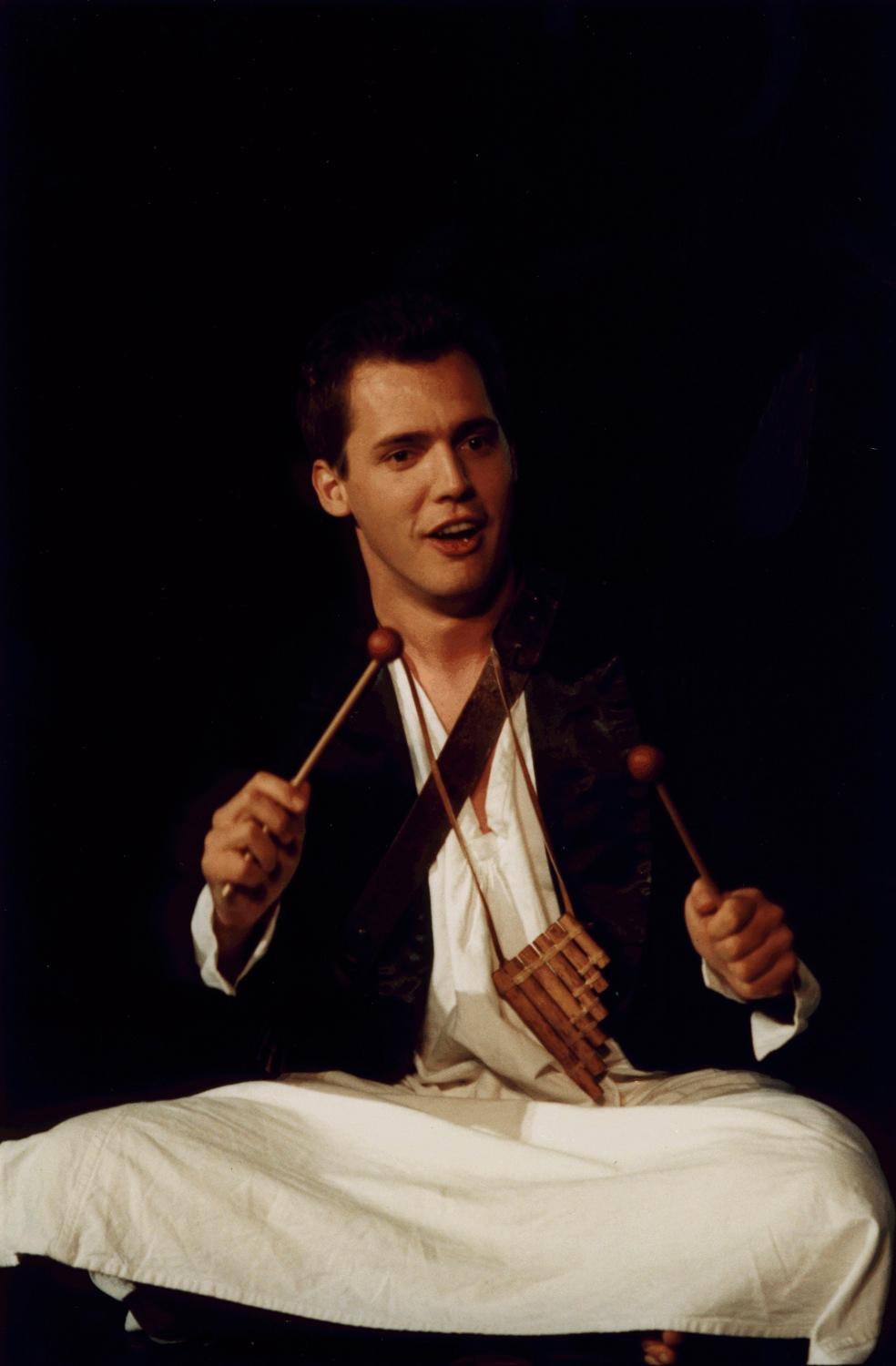
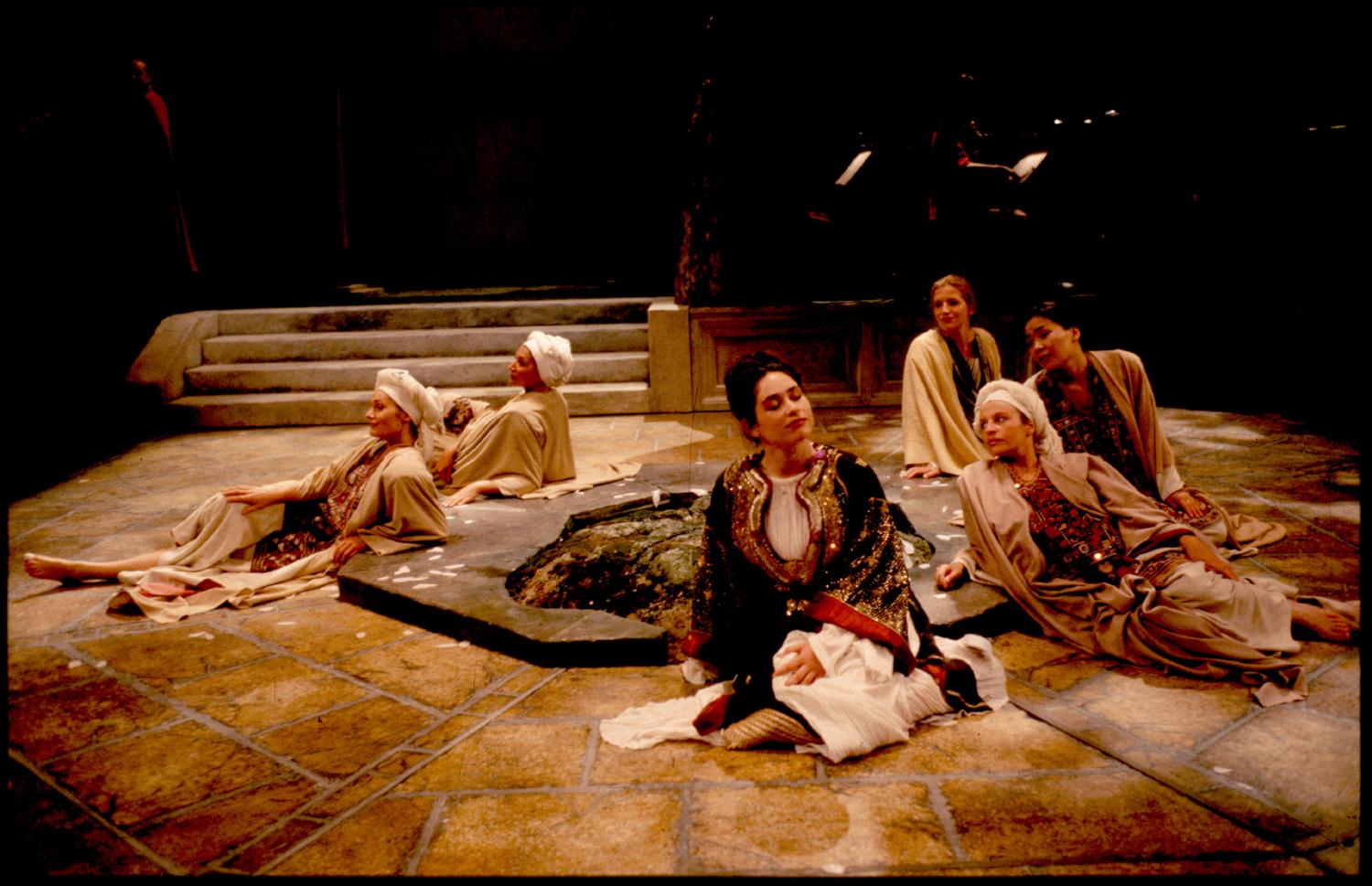
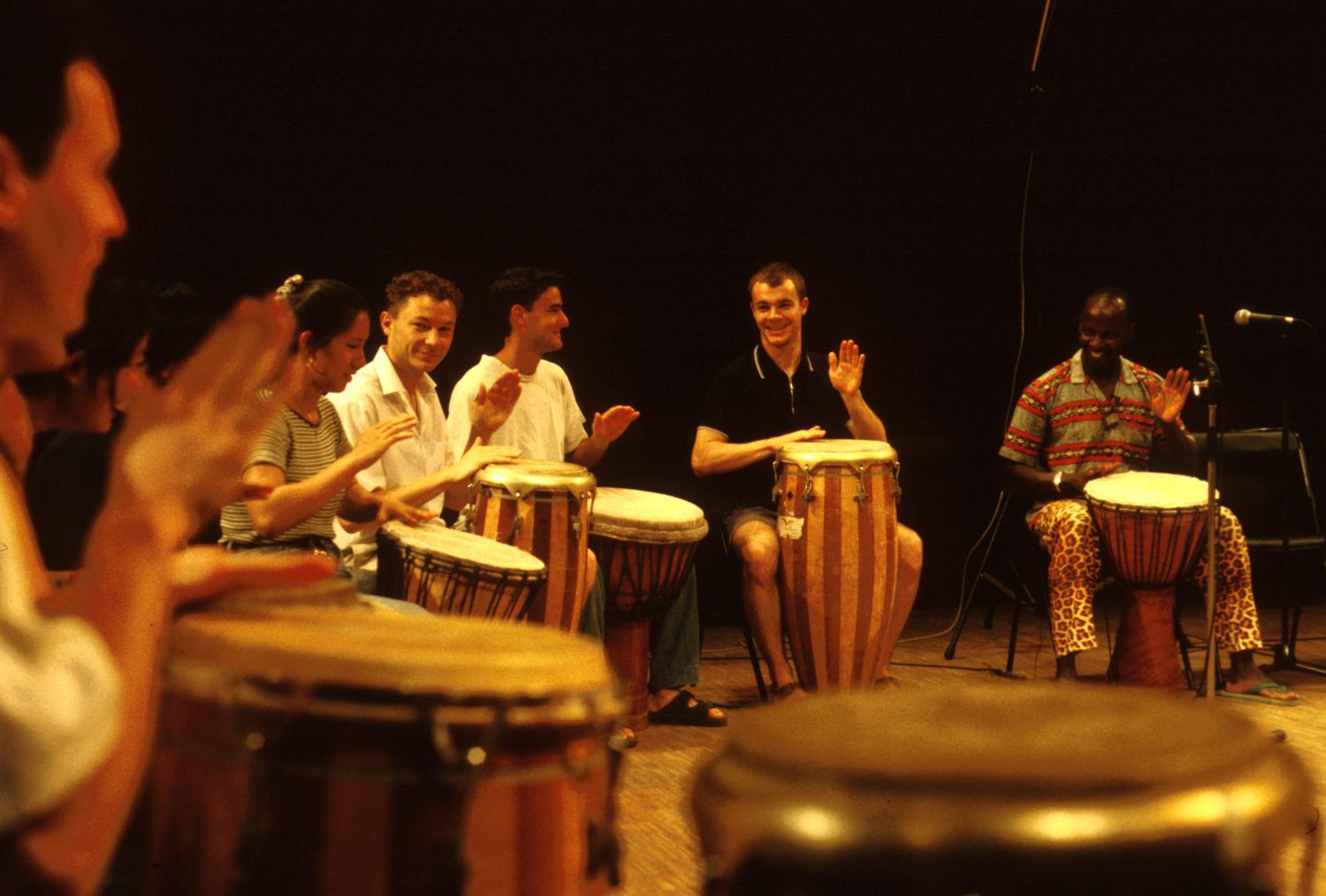
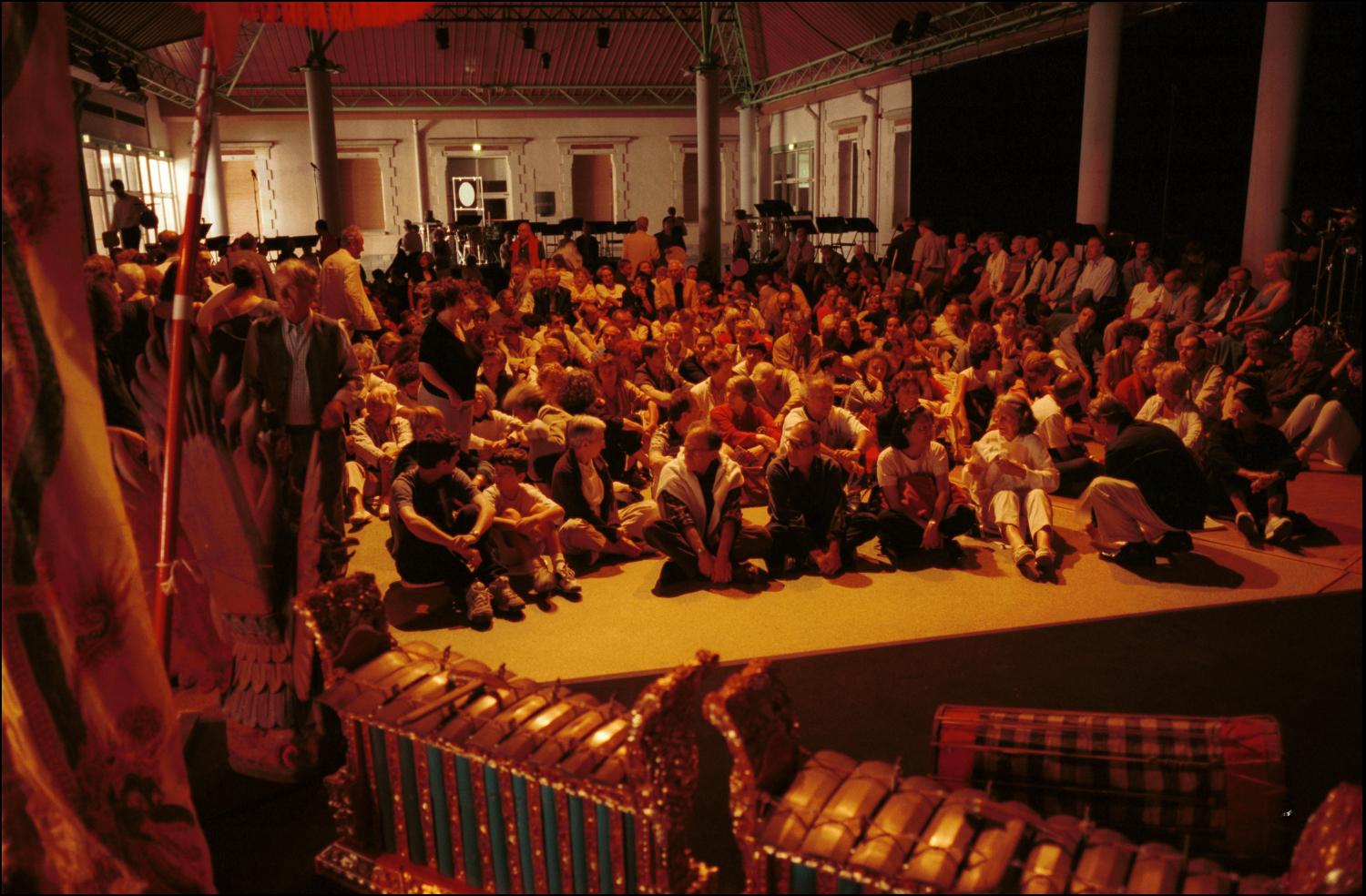
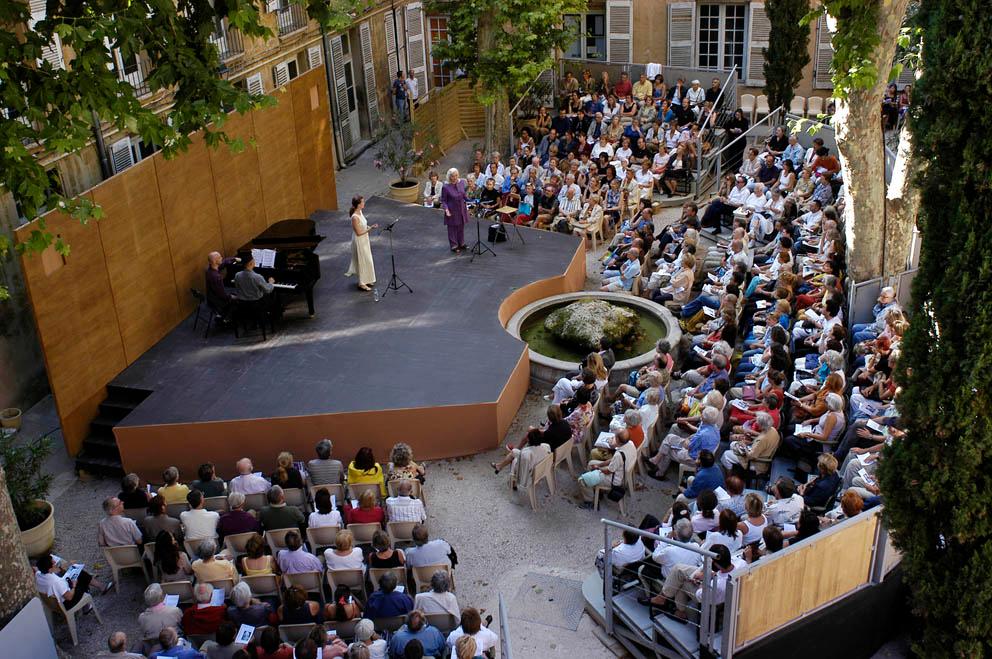
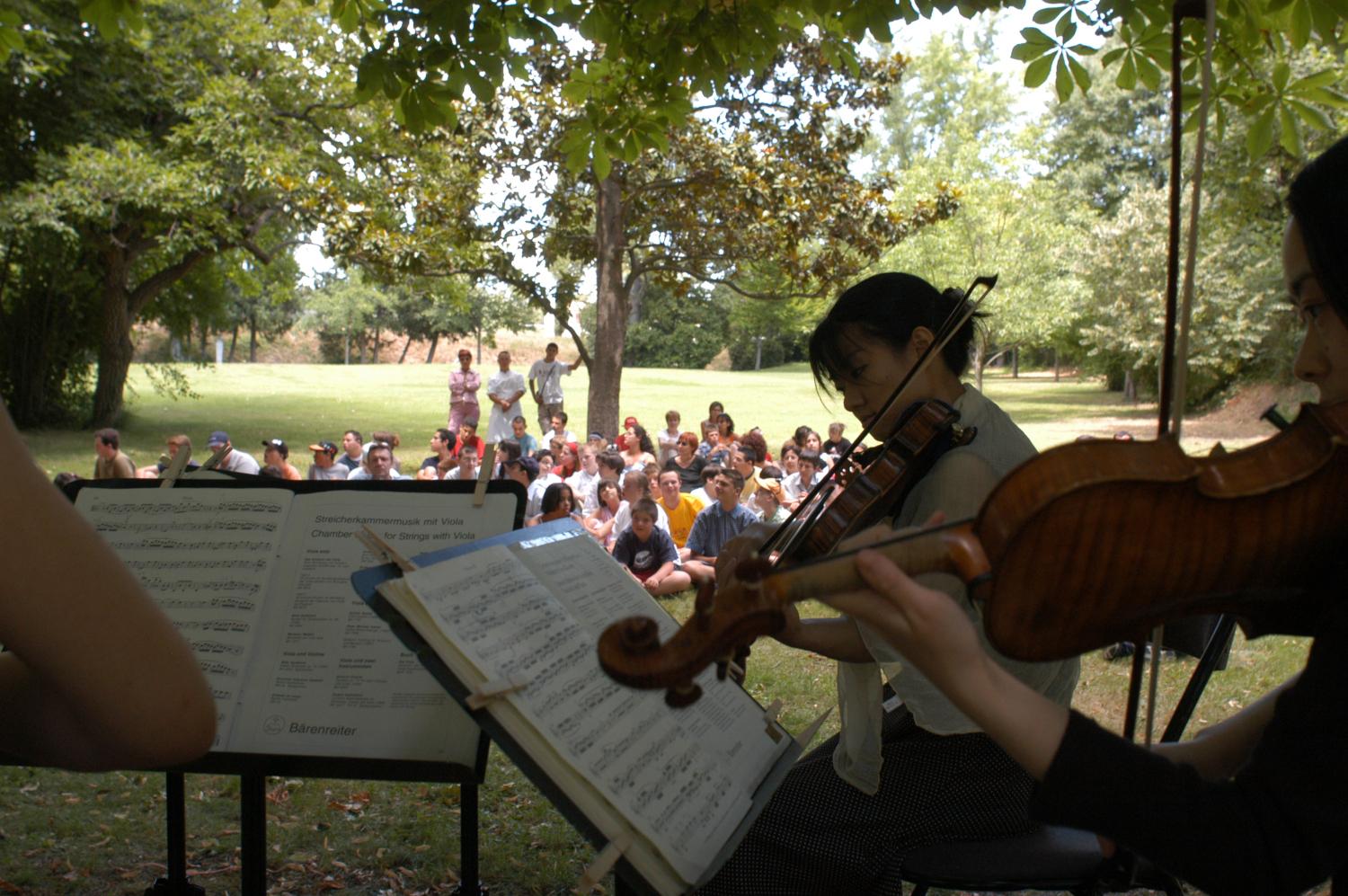
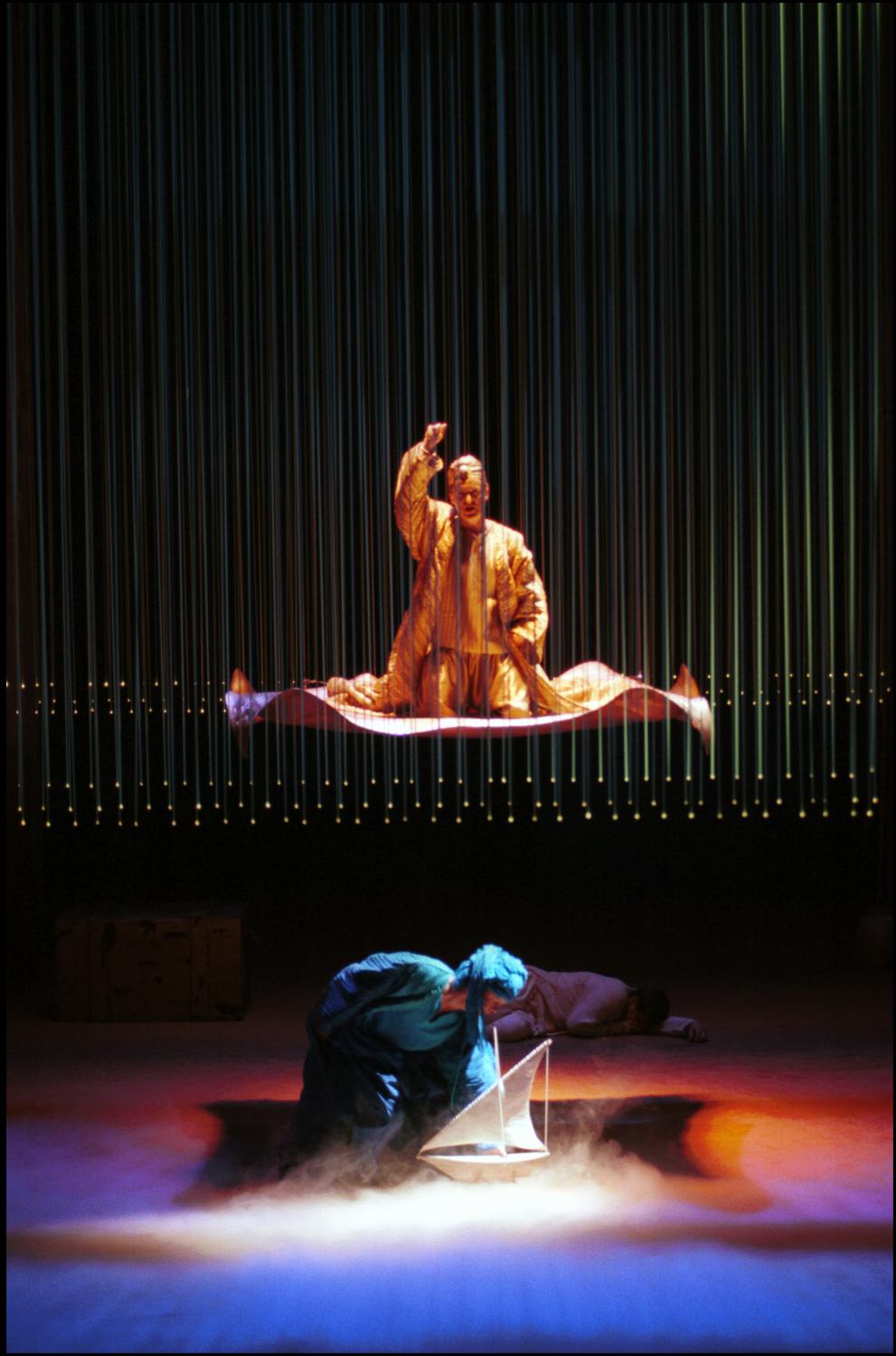
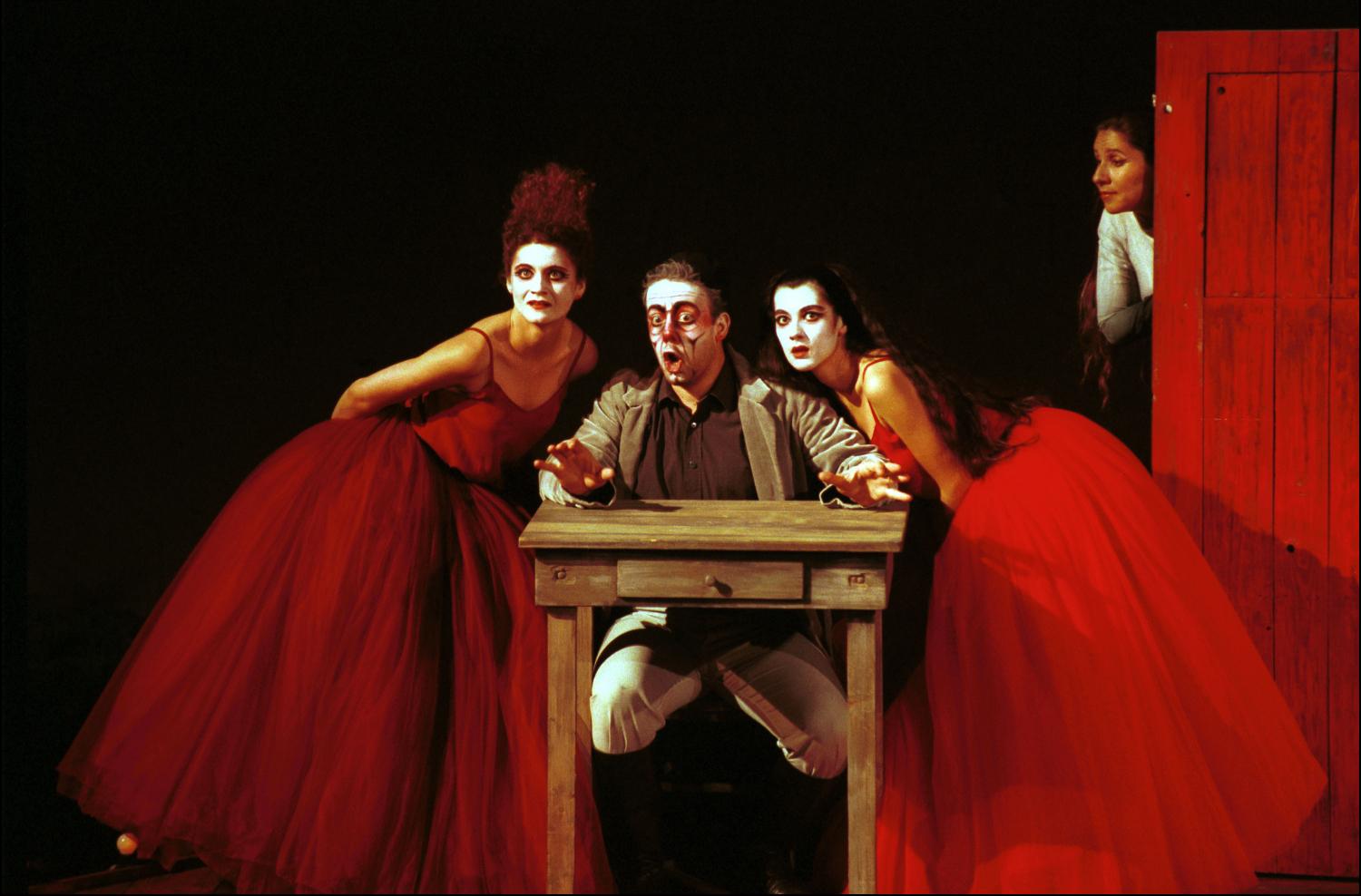
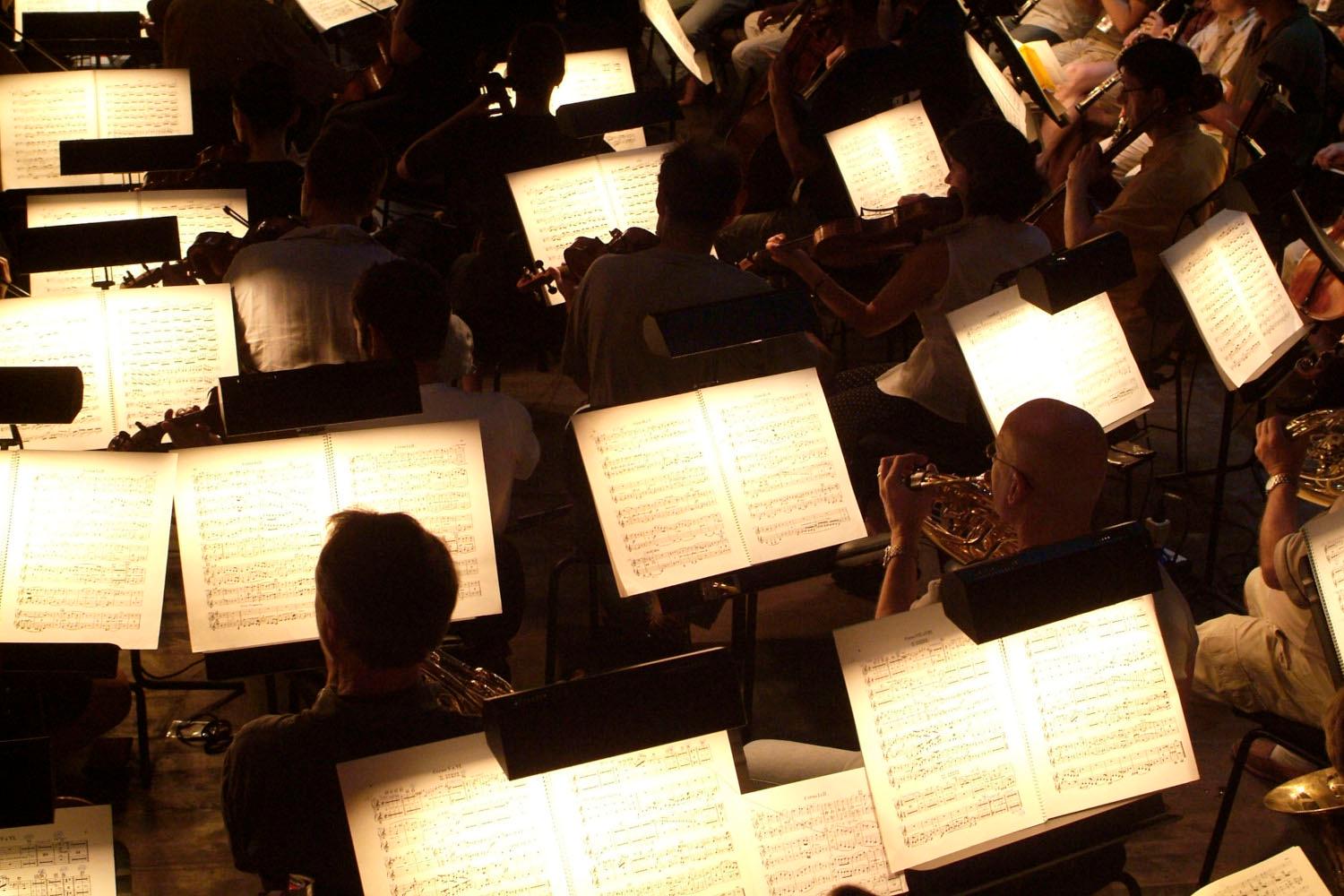
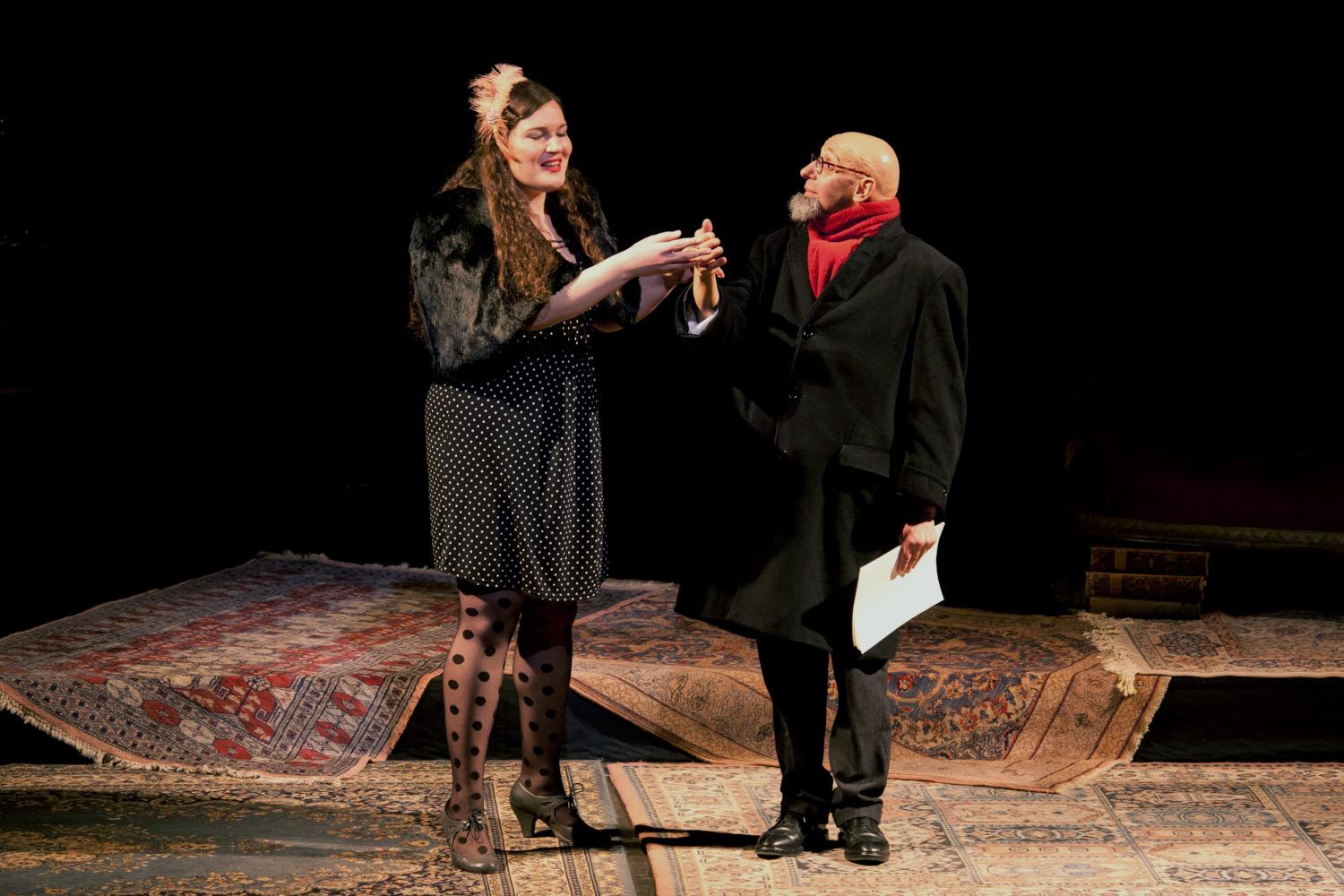
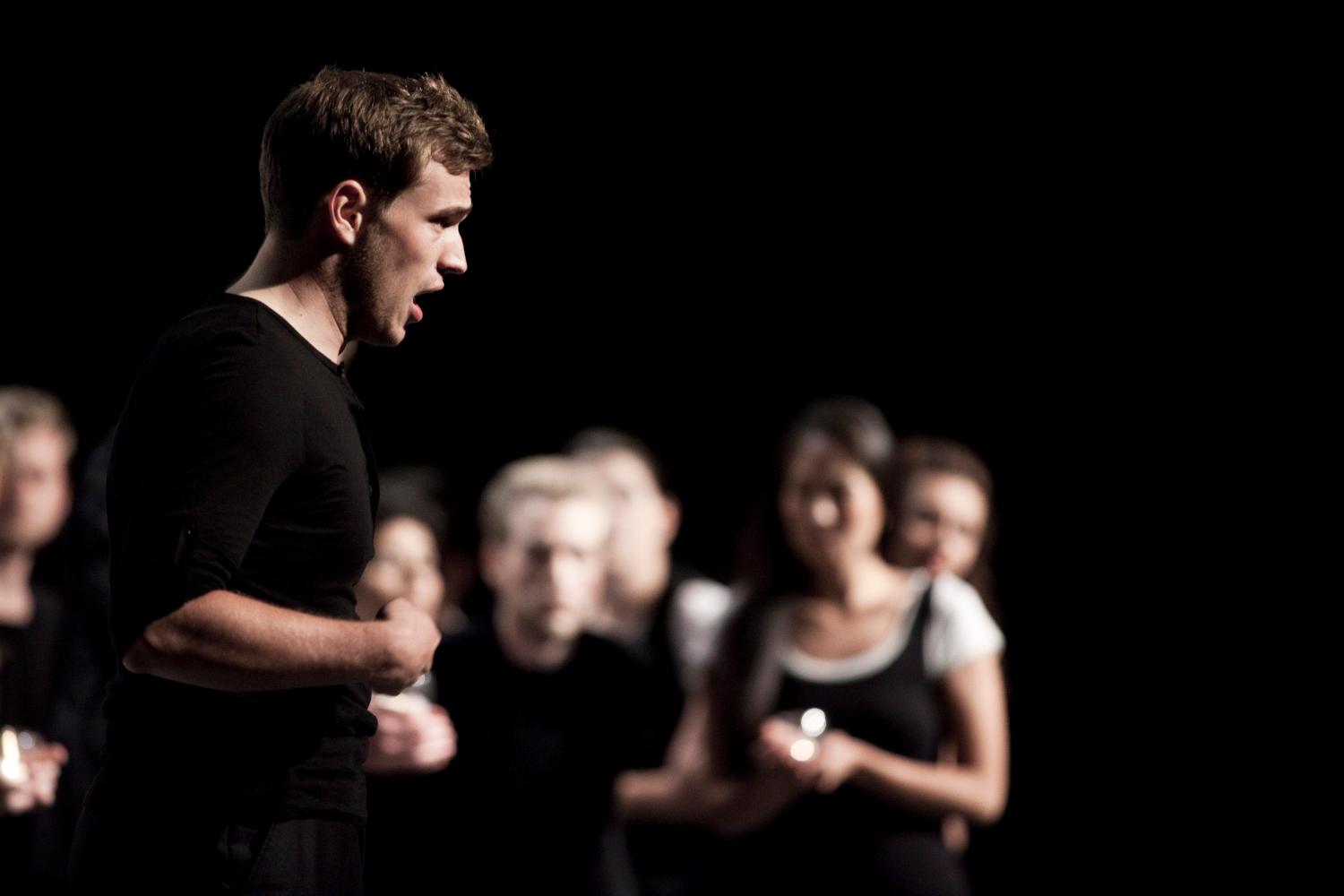
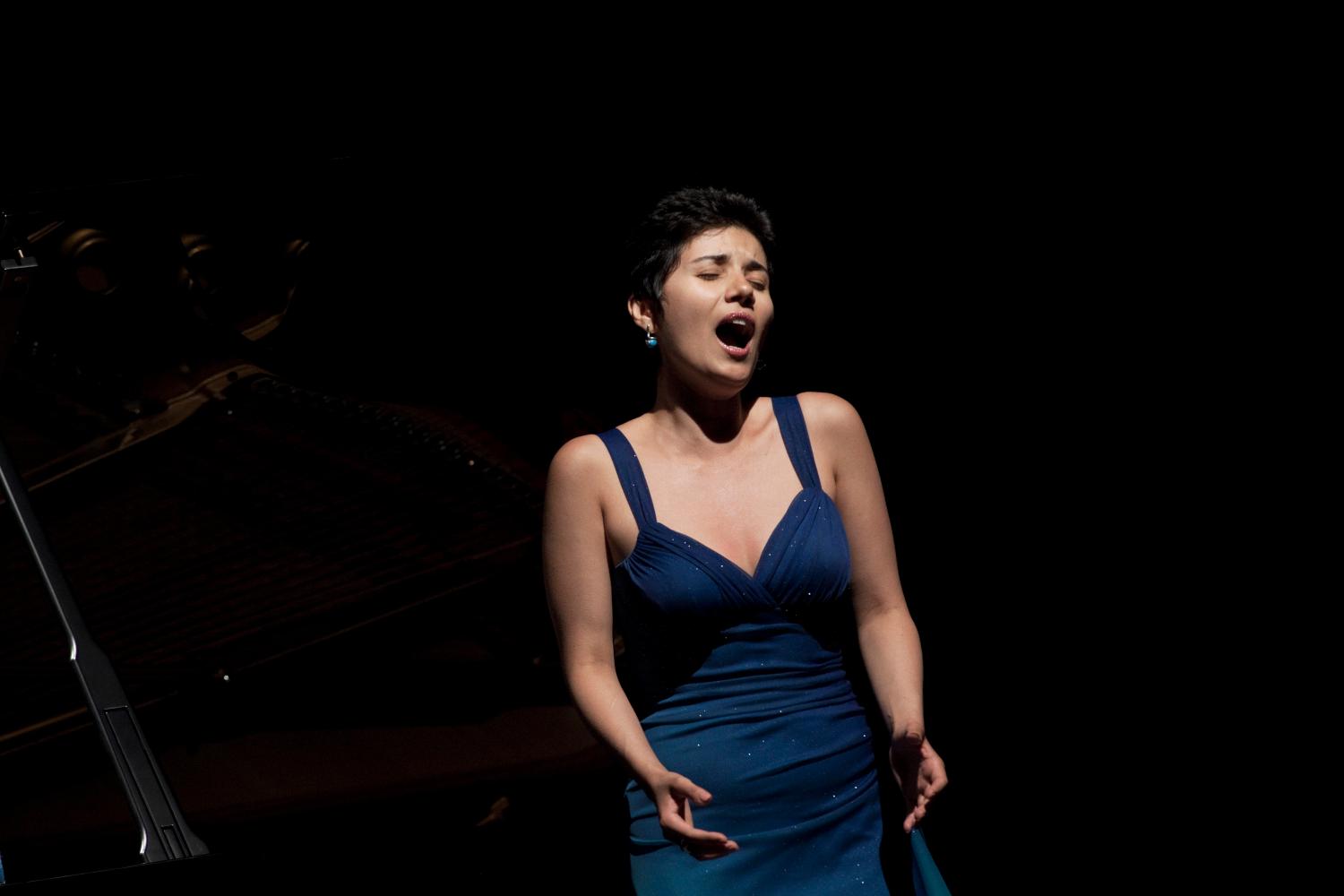
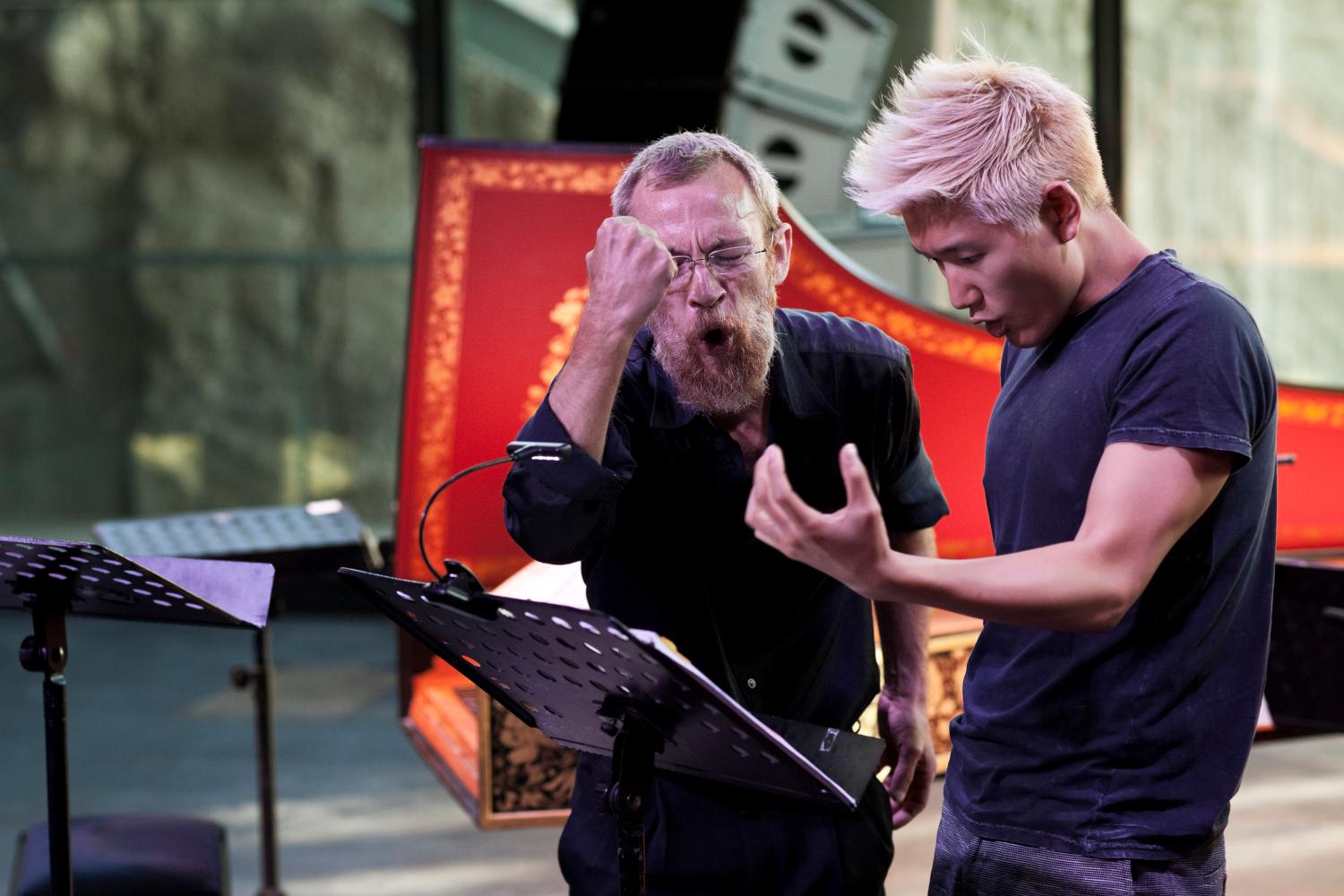
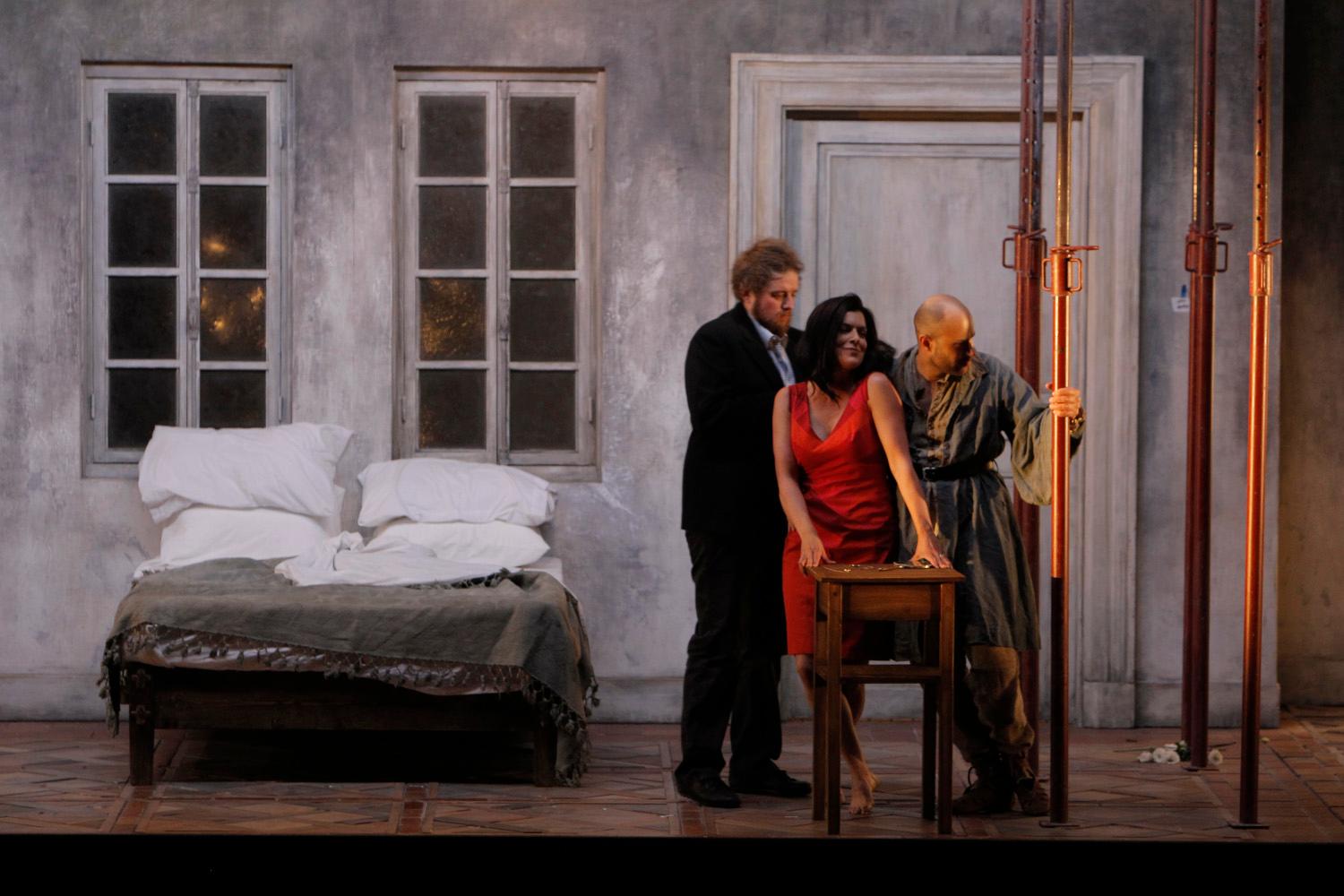
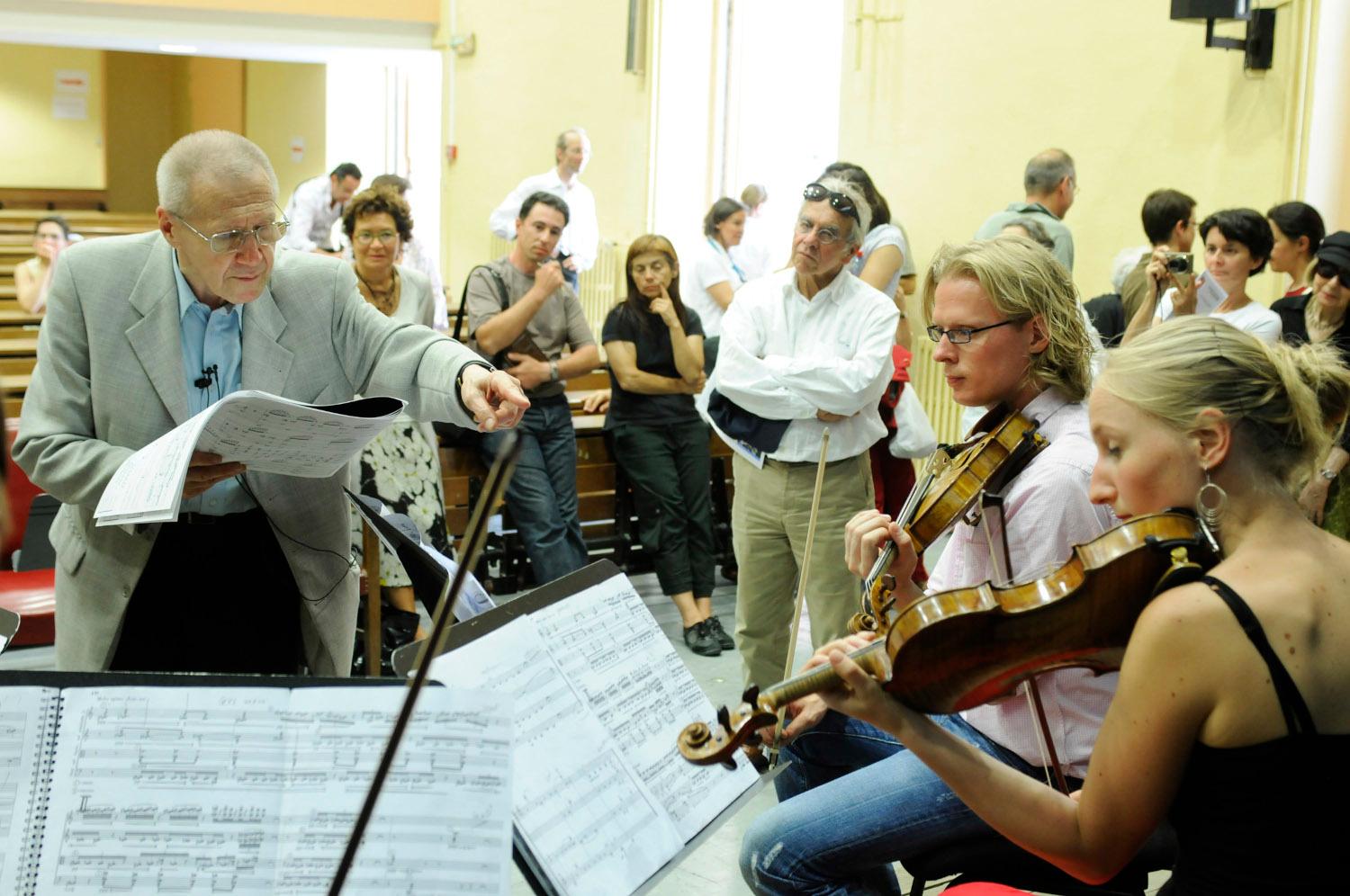
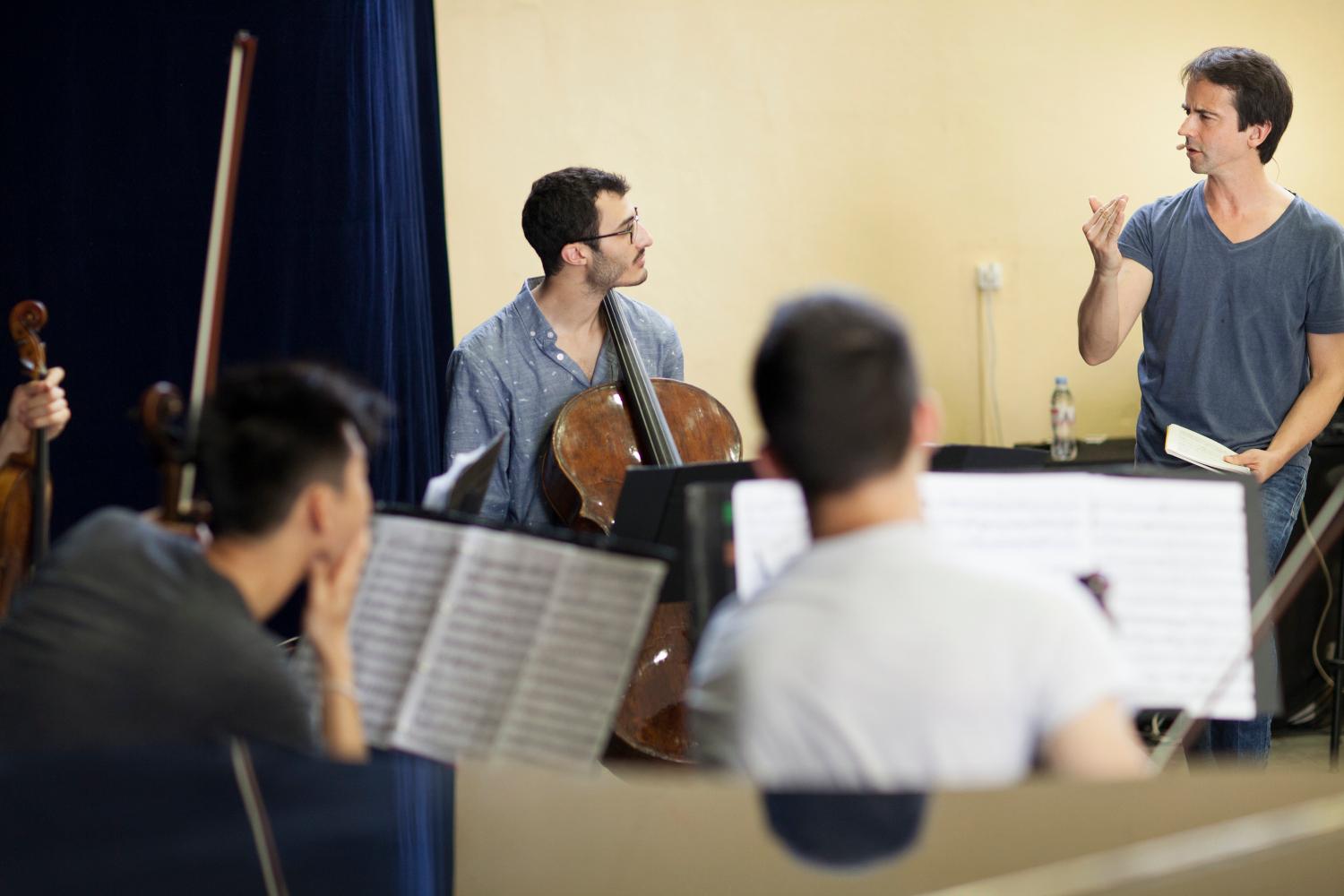
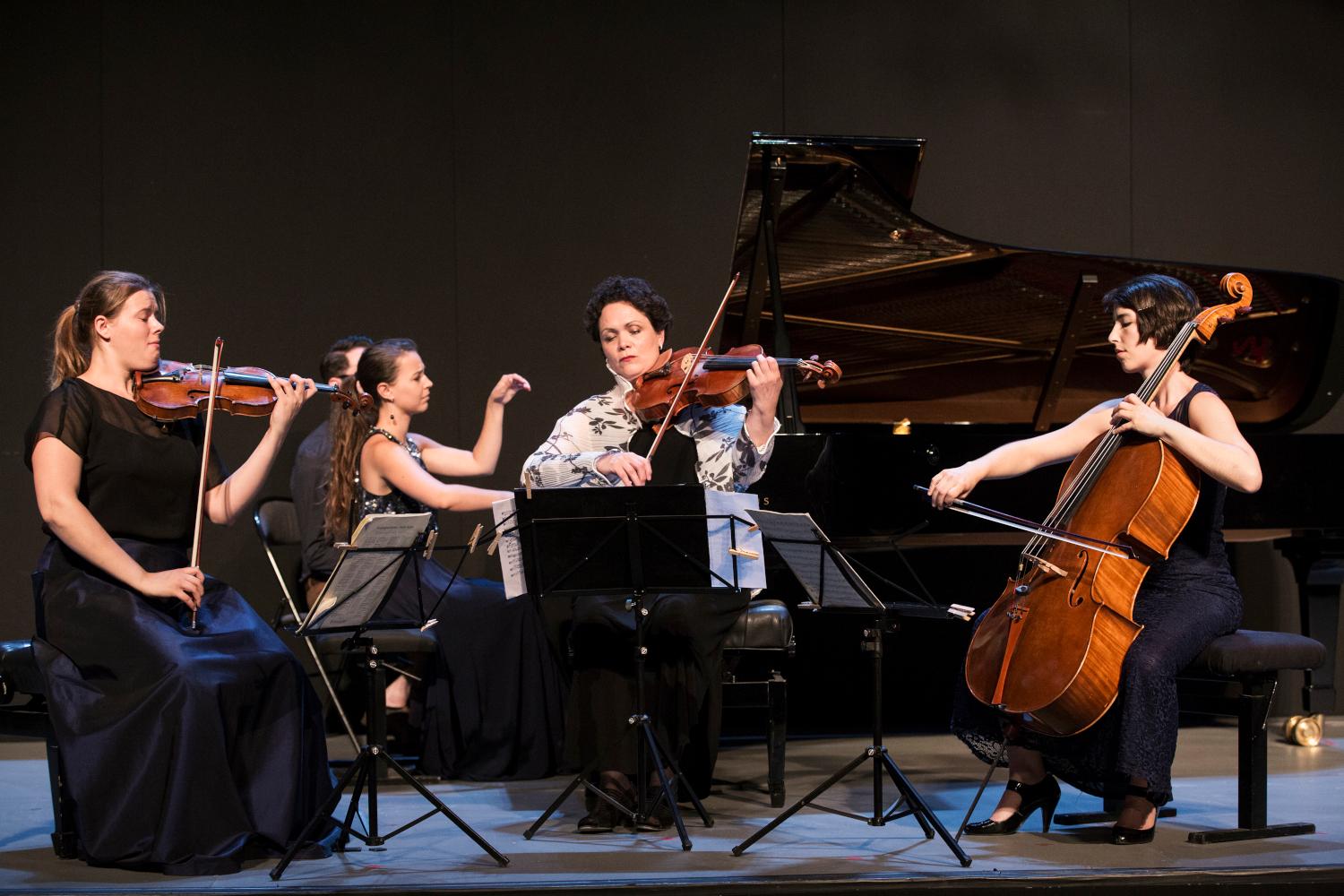
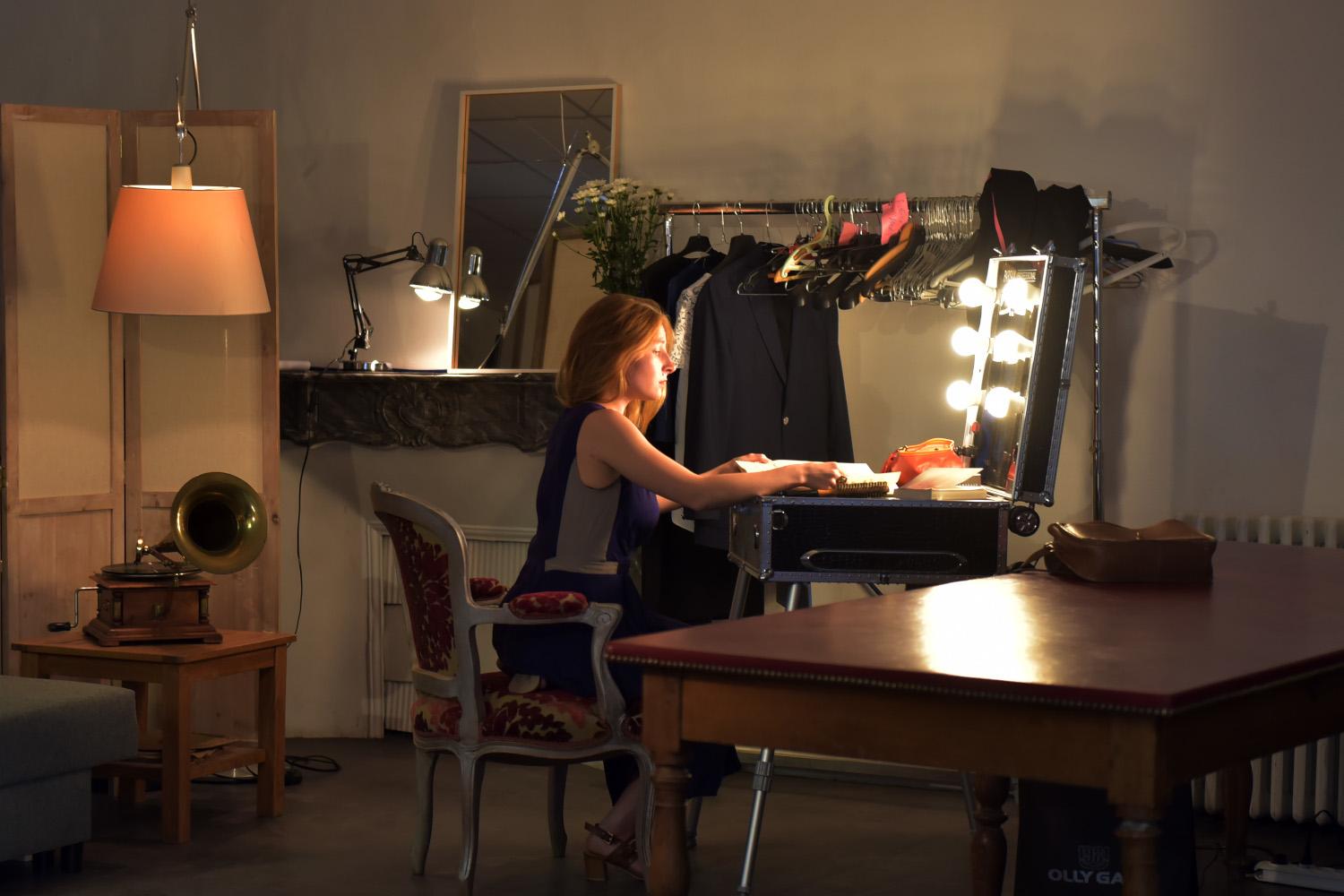
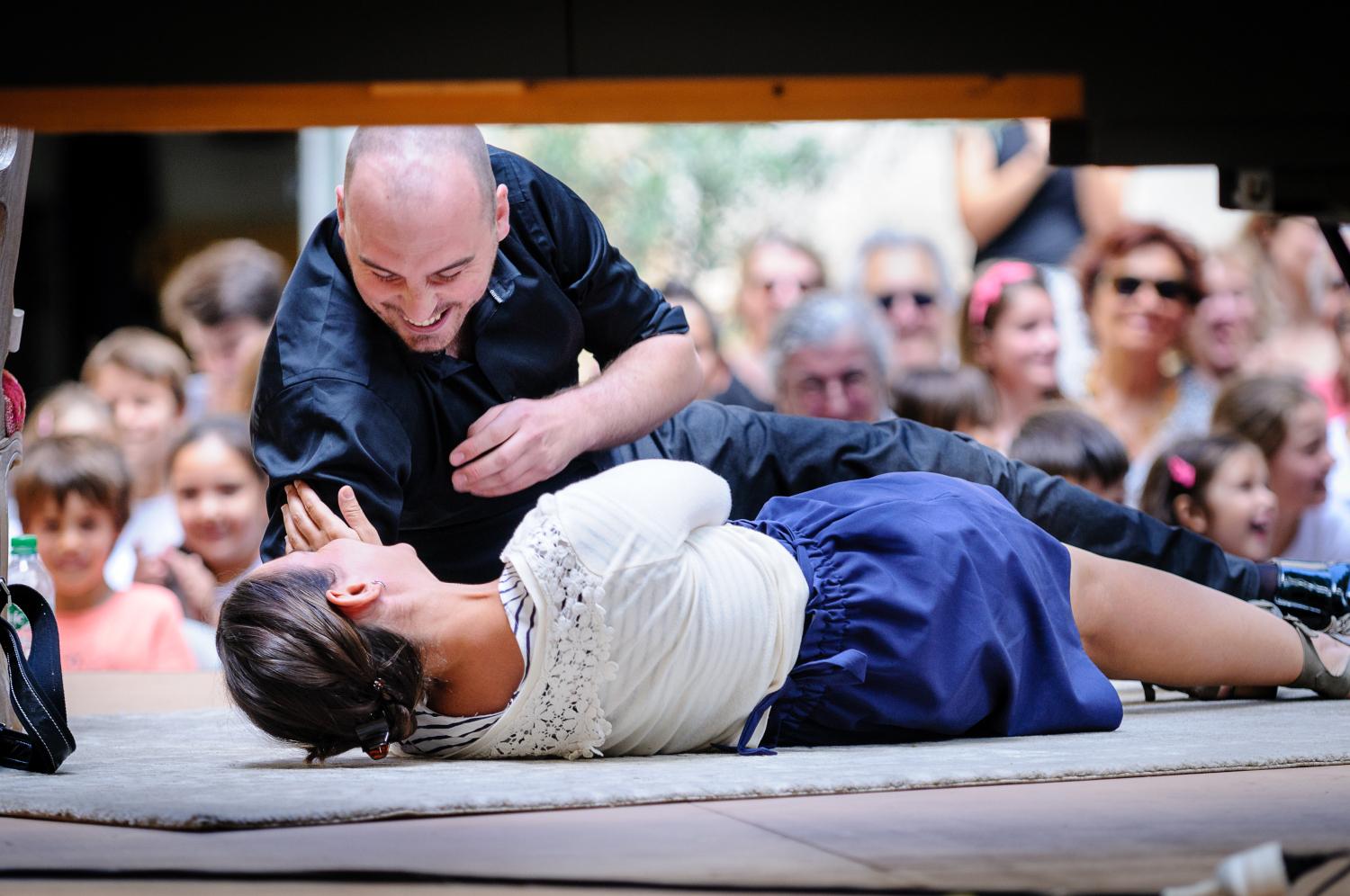
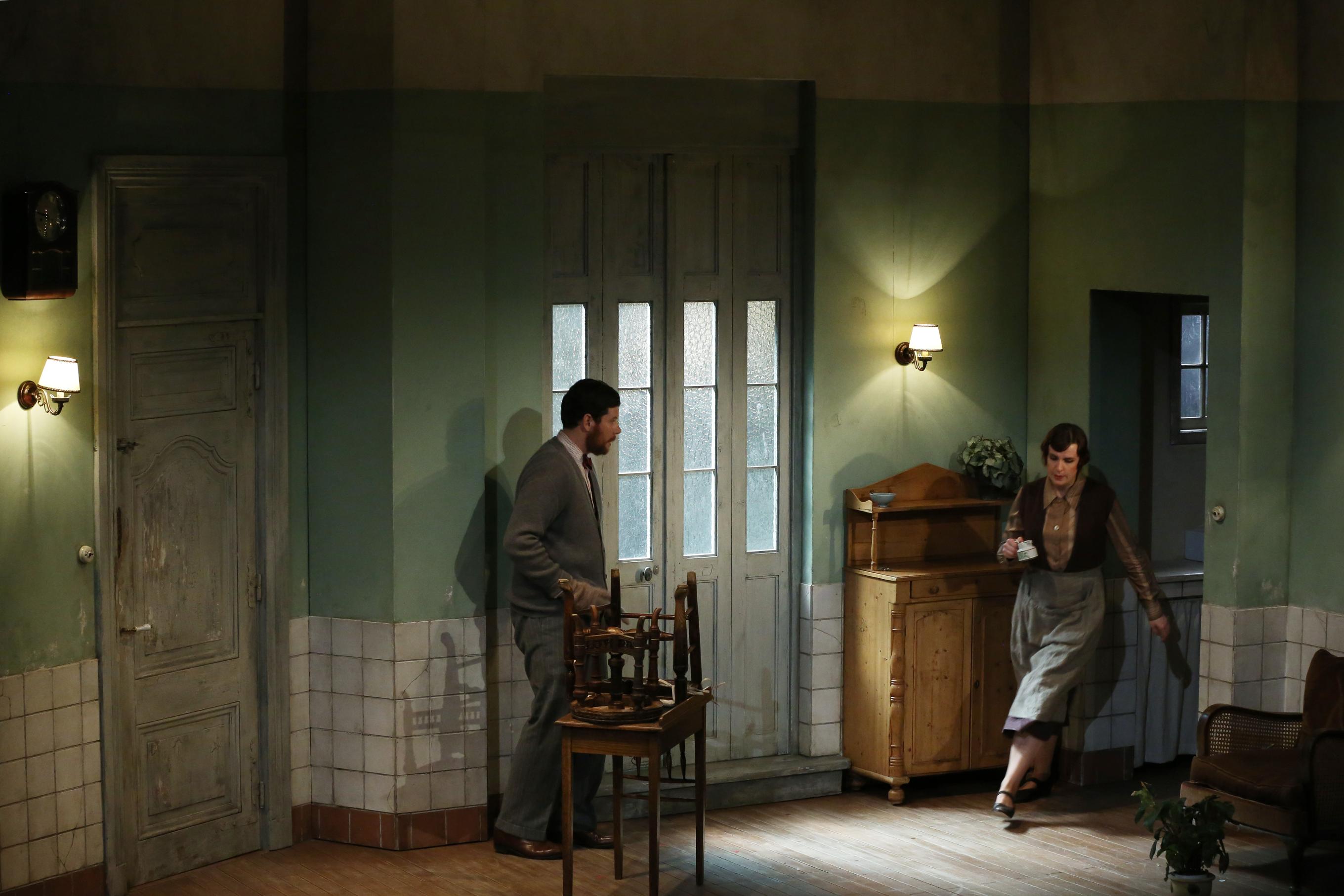
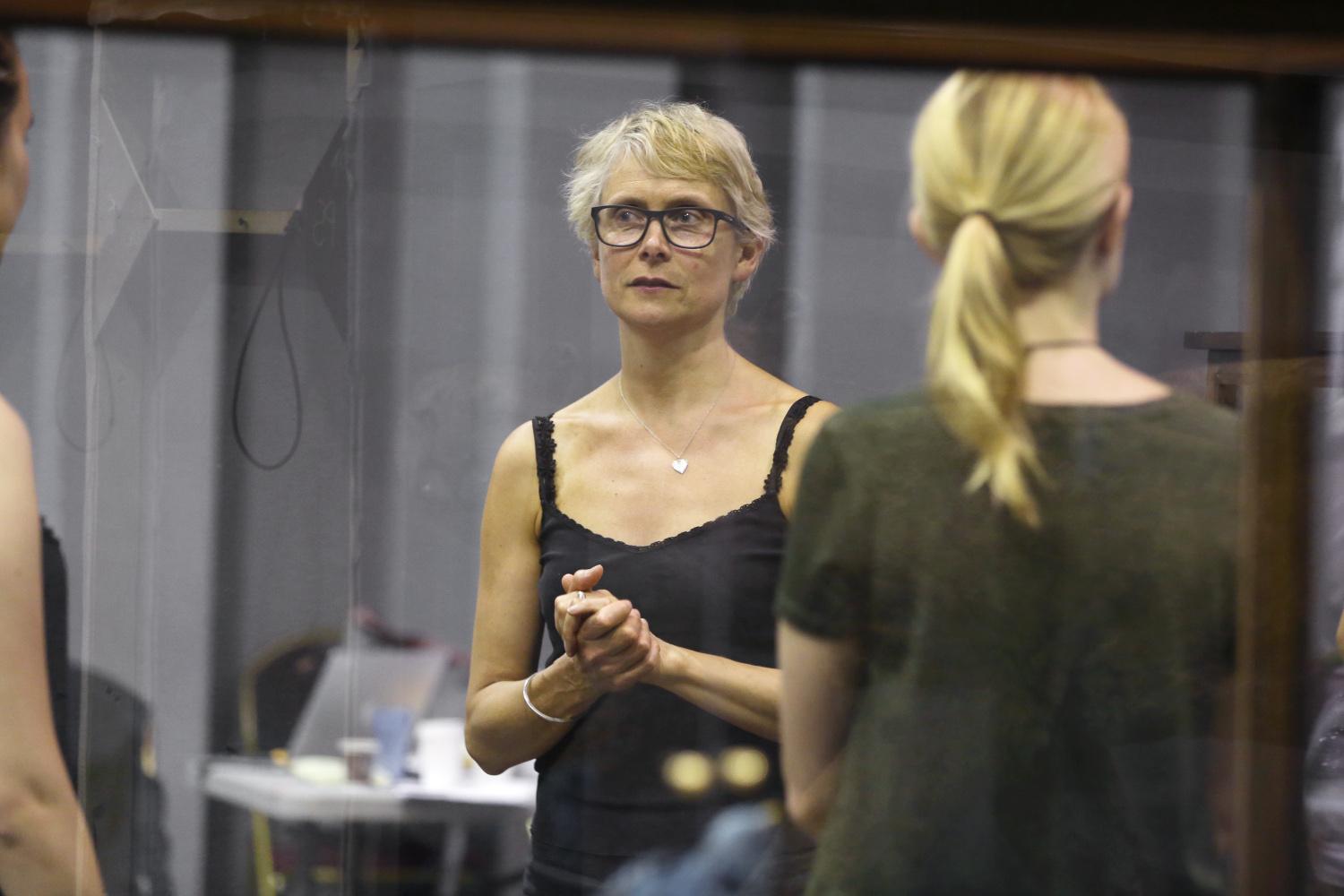
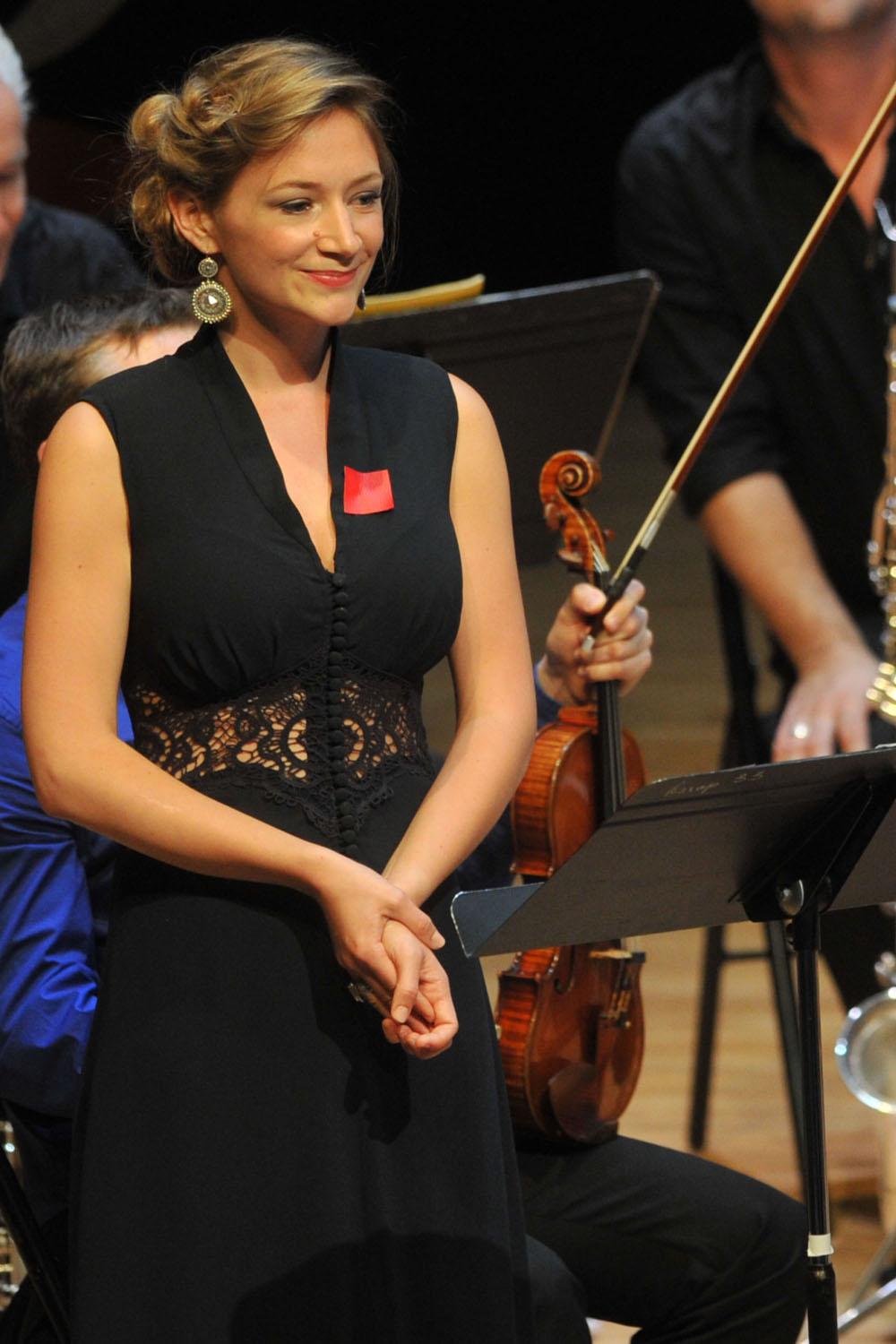
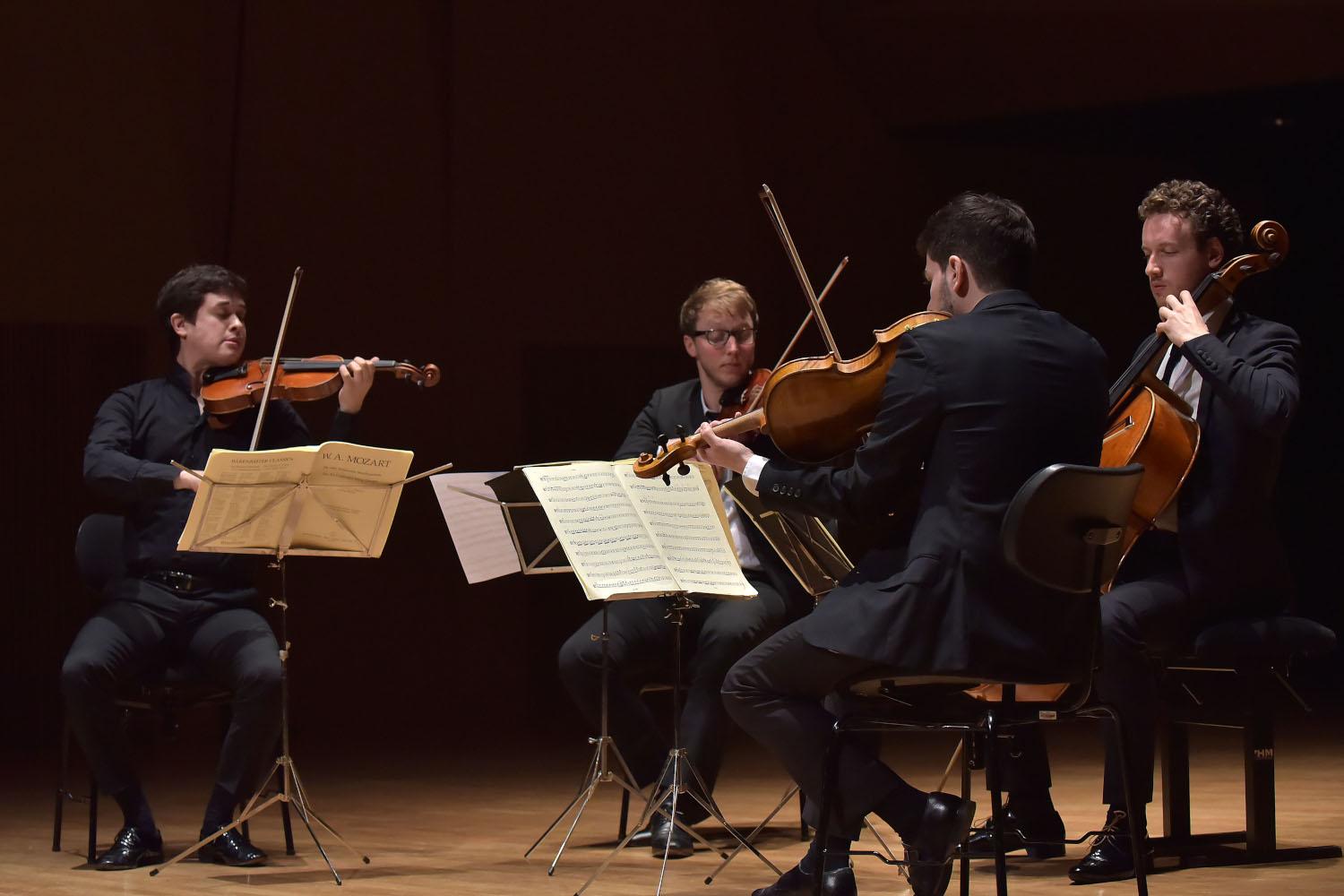
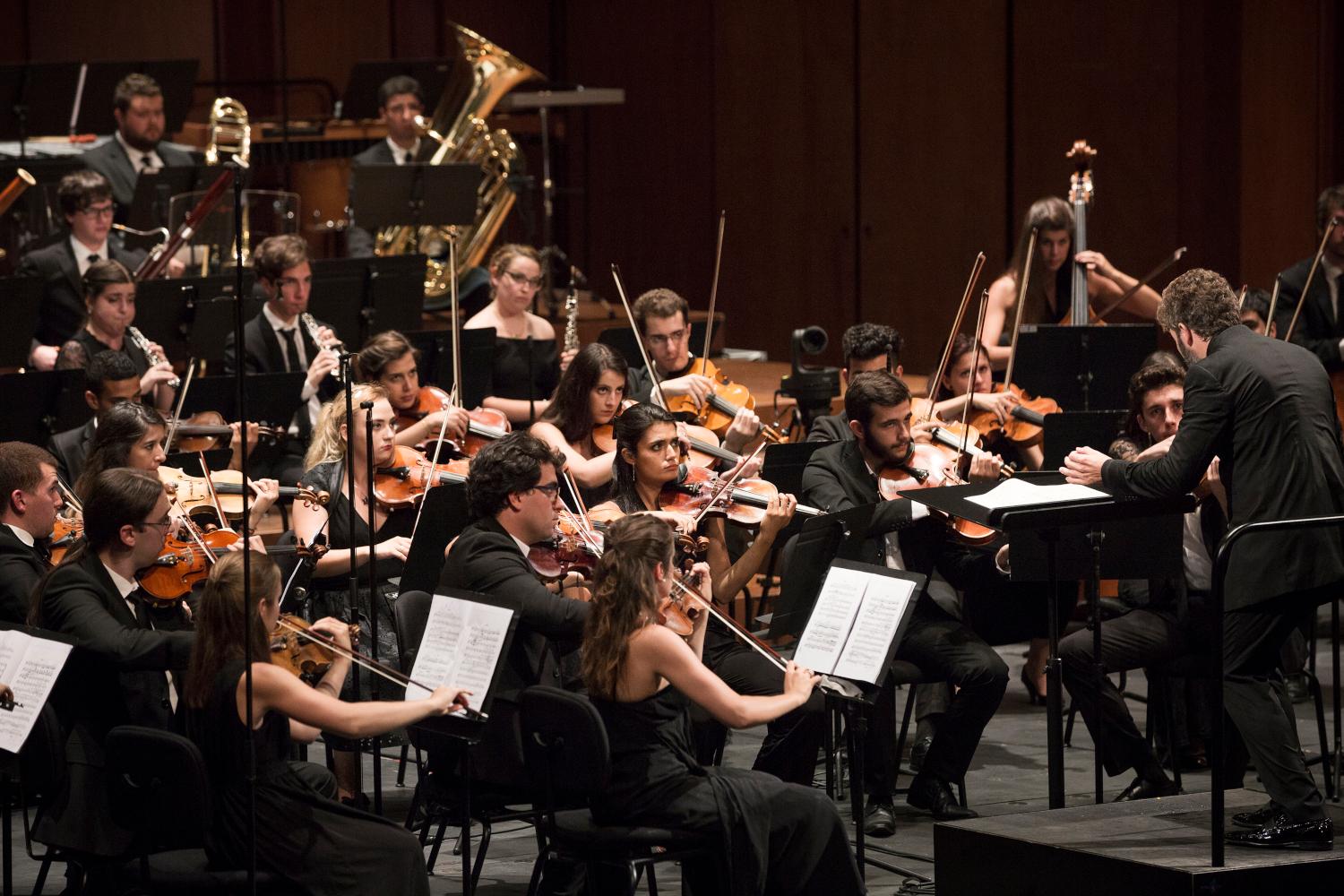
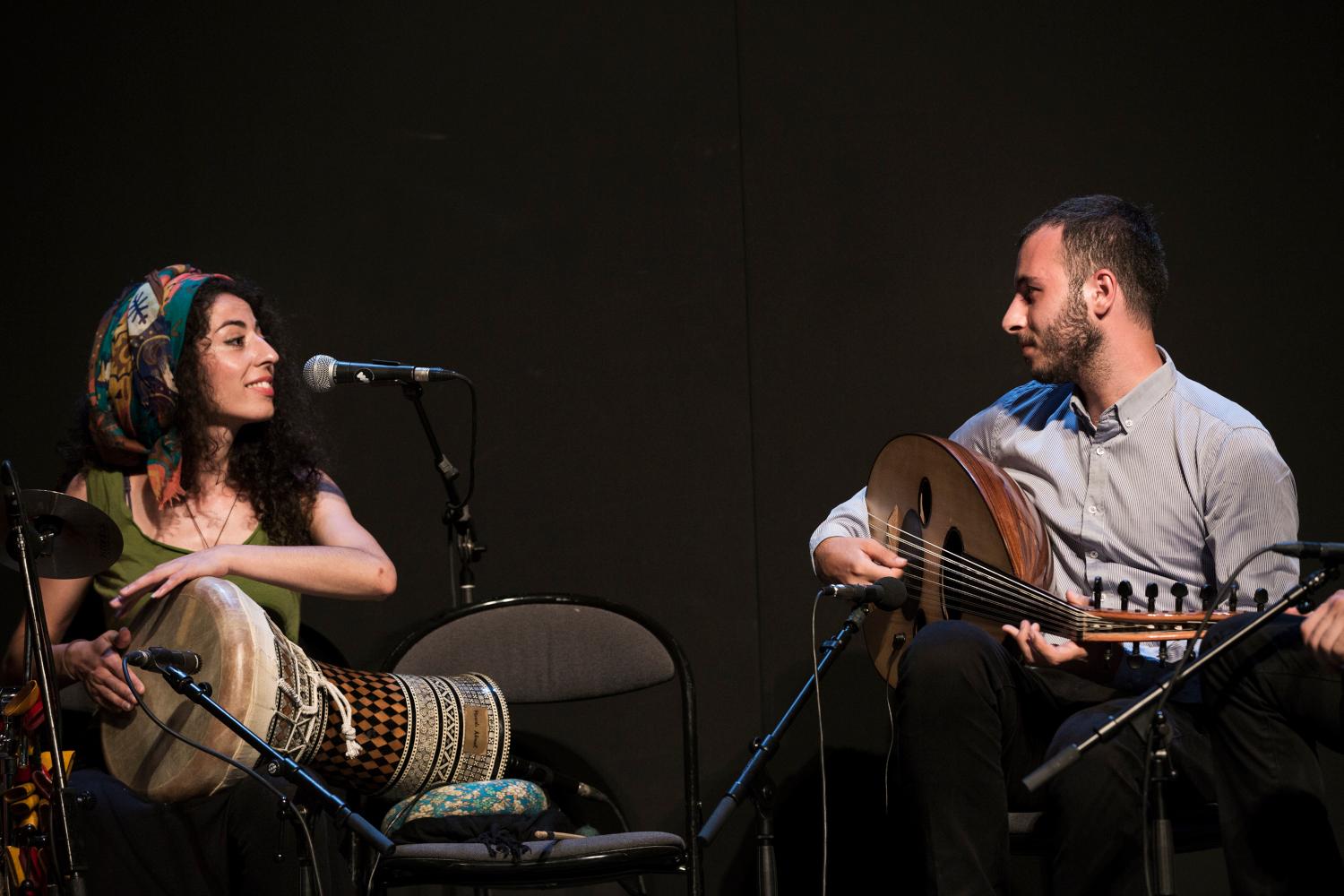
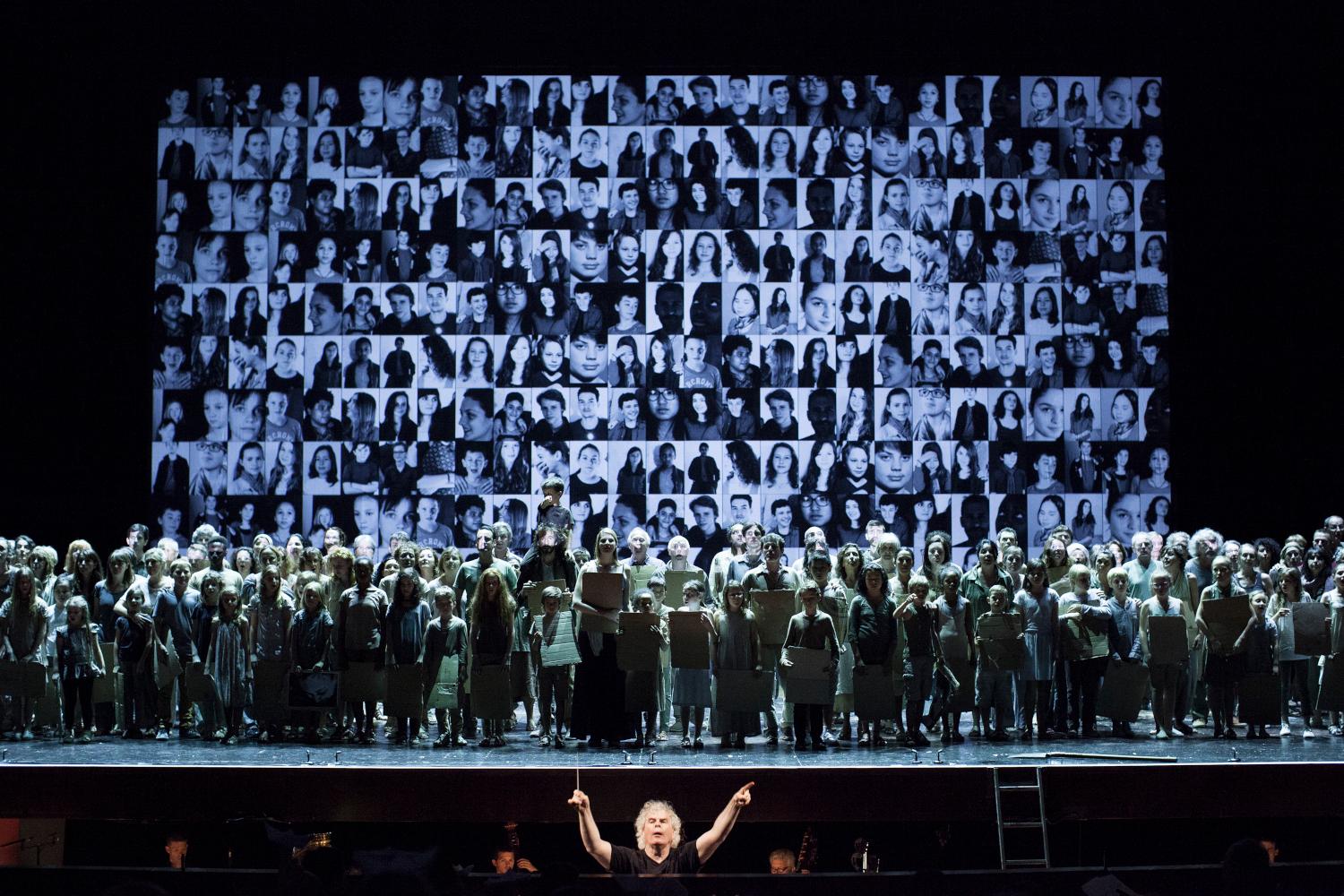
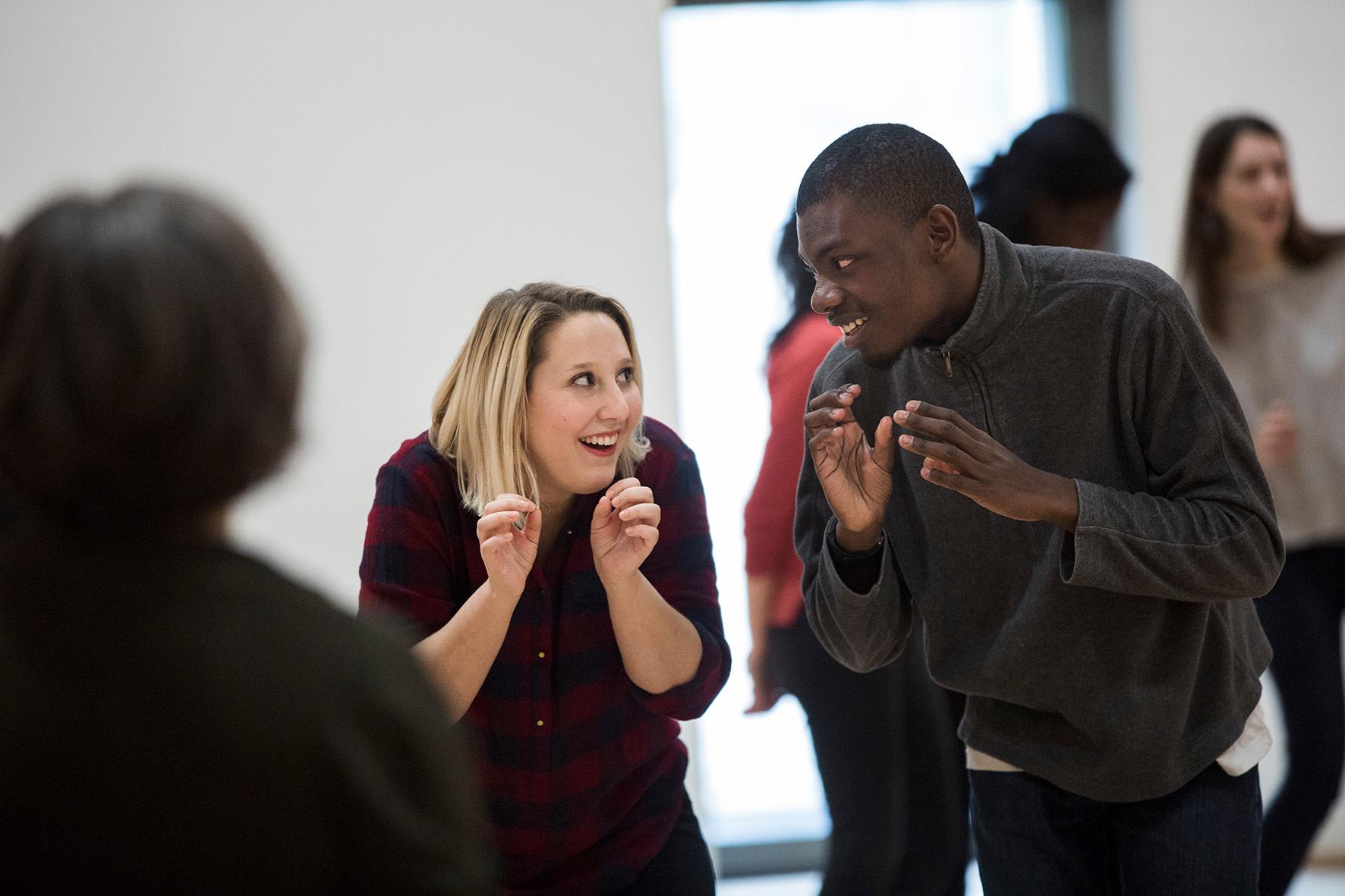
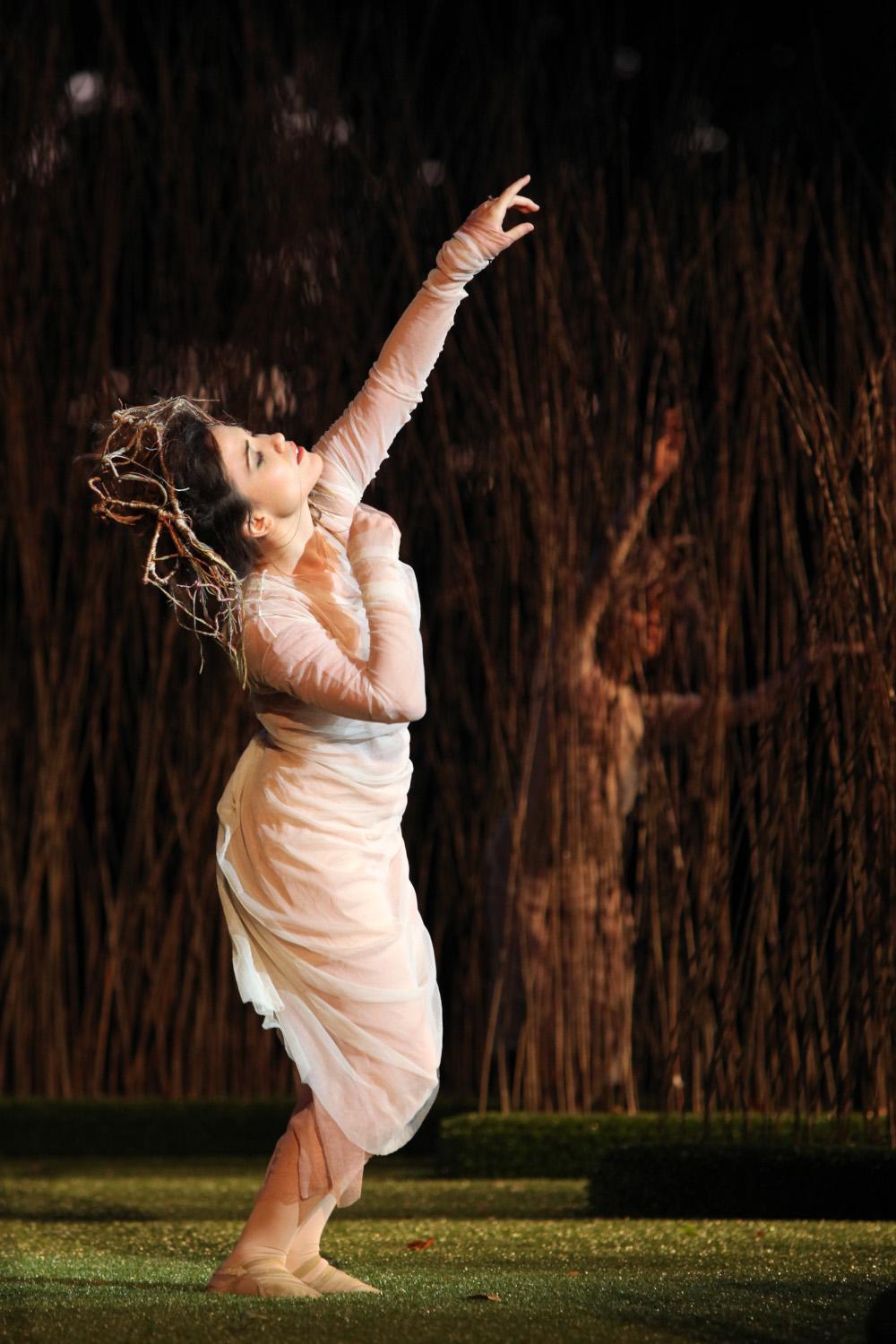
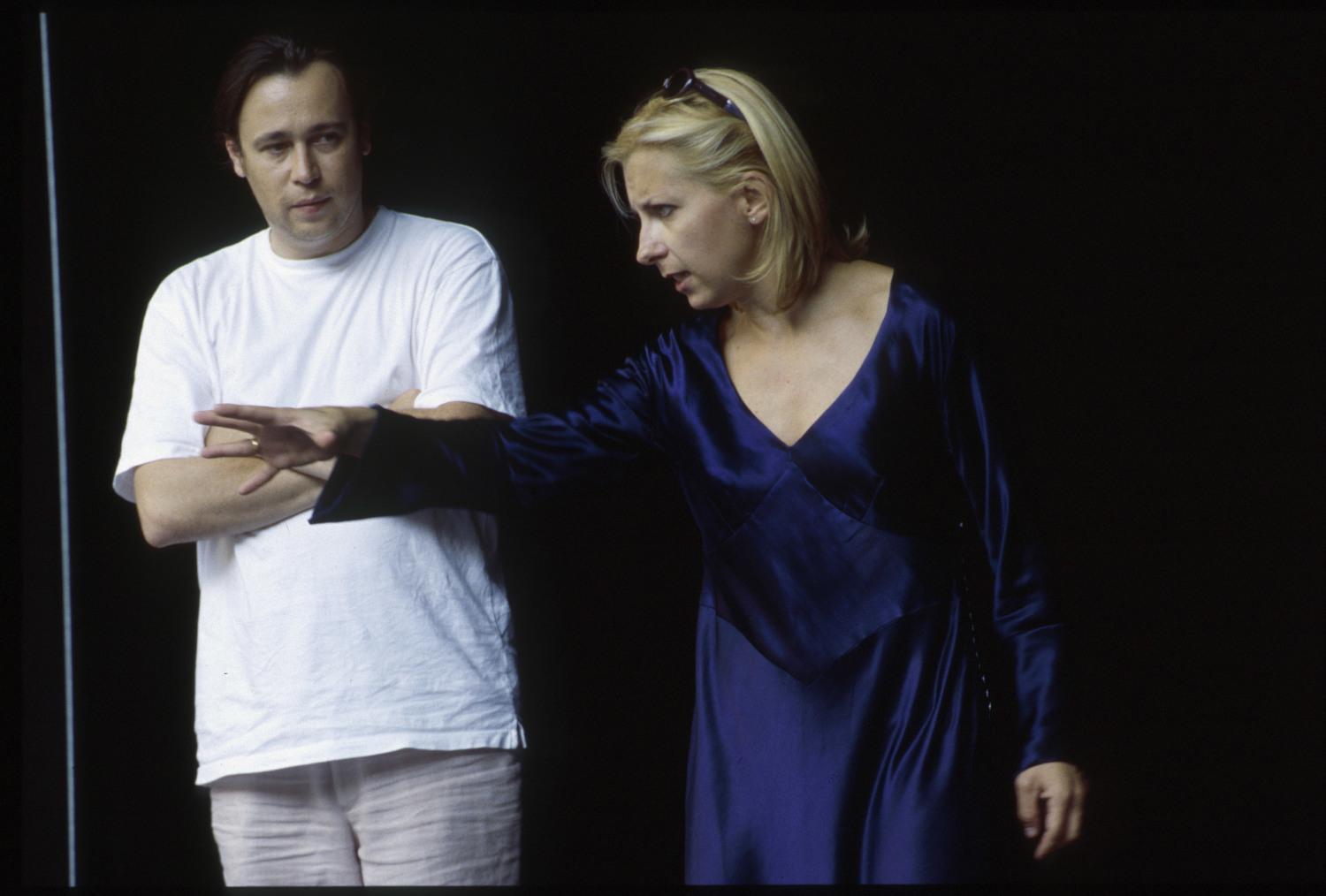
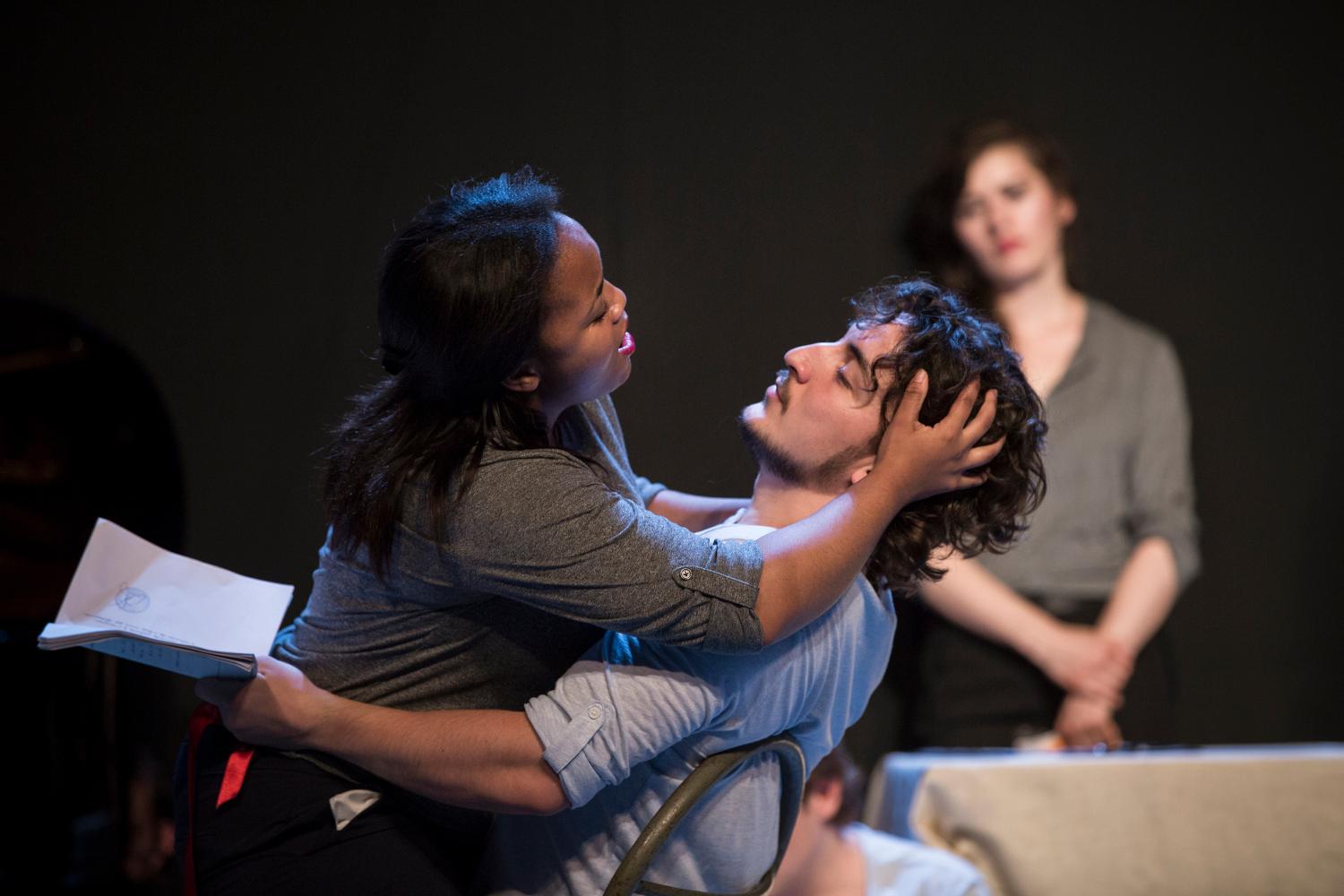
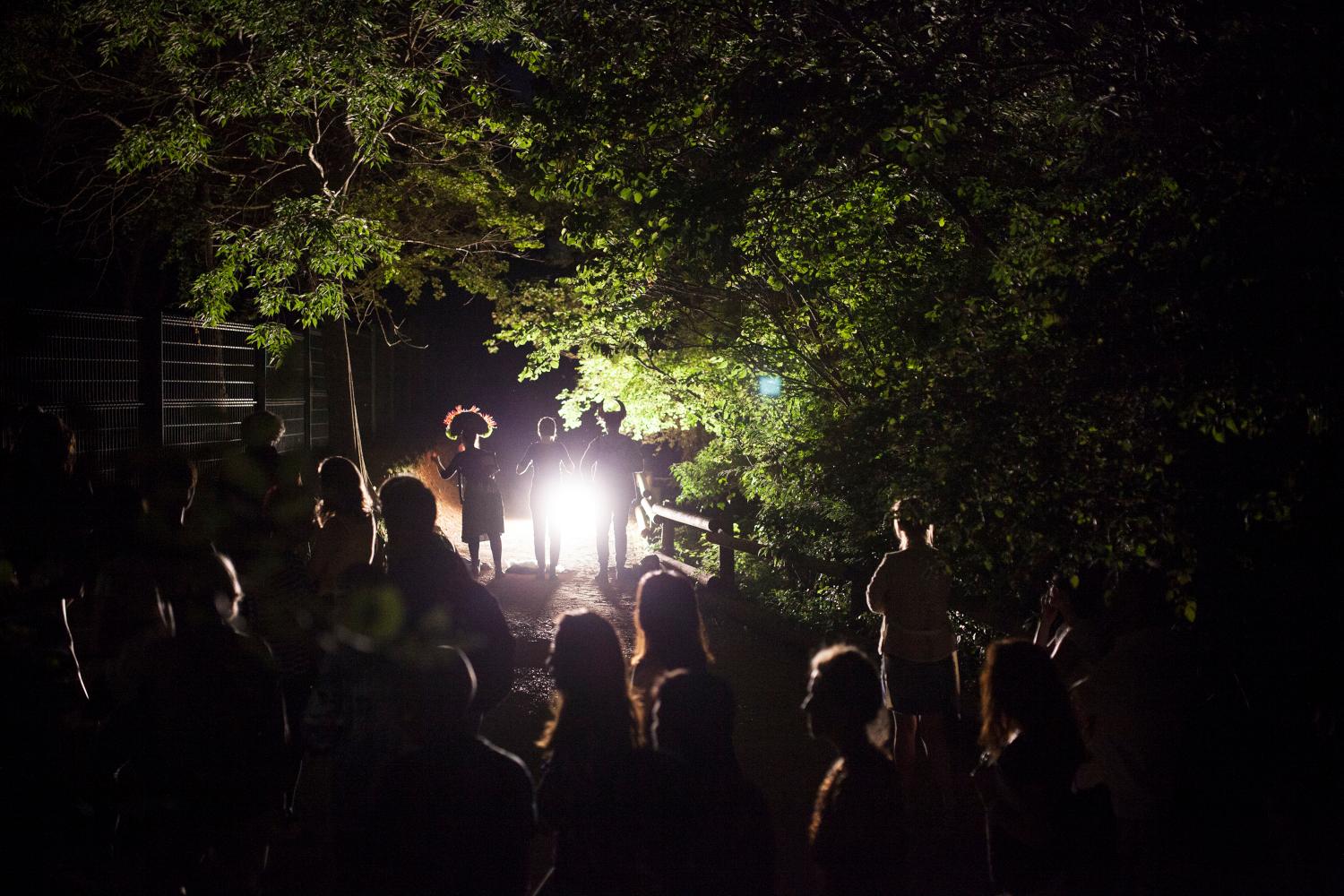
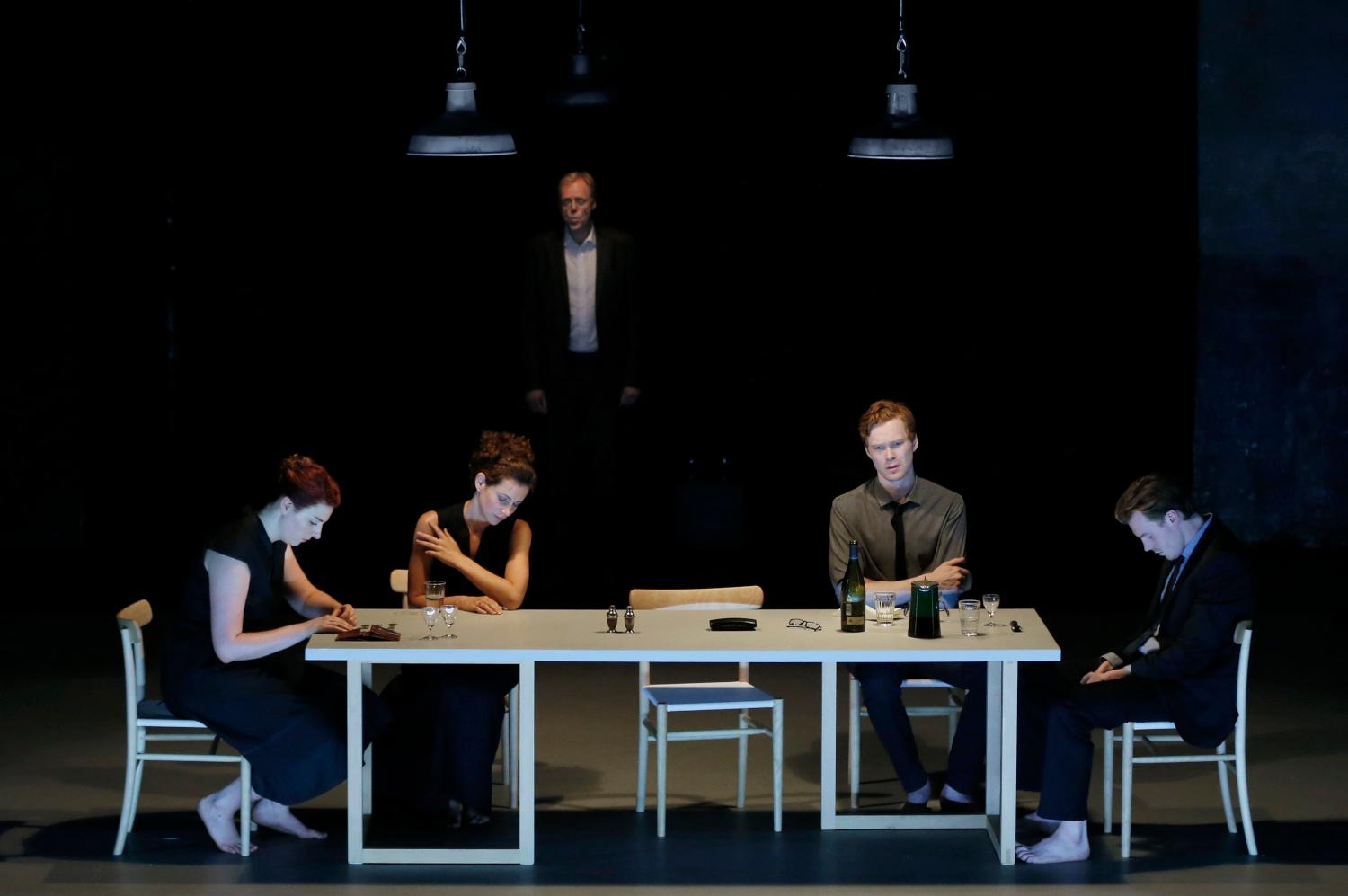
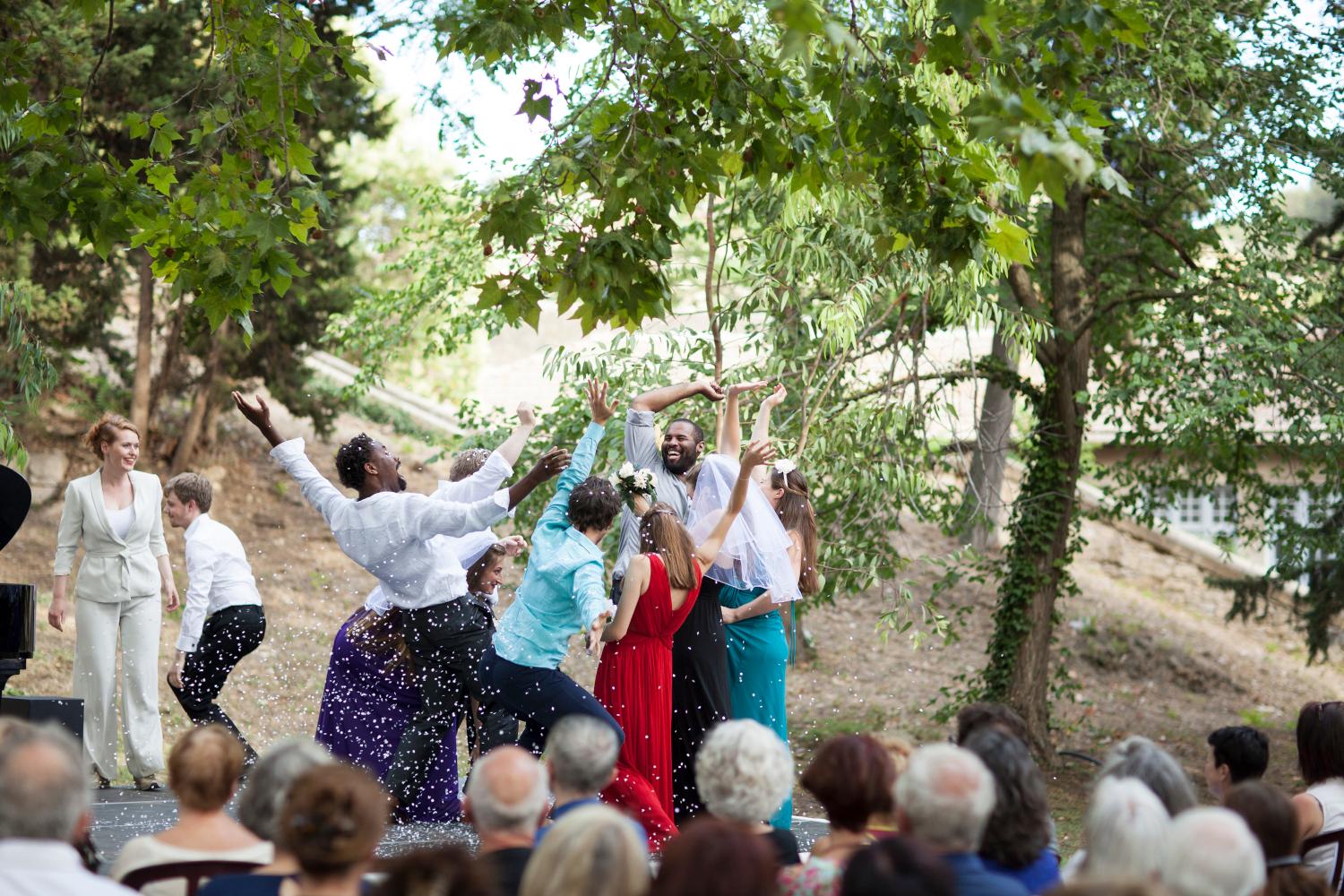
![PARADE[S] - Festival d'Aix-en-Provence 2017](/_next/image?url=https%3A%2F%2Fmedias.festival-aix.com%2Fsites%2Fdefault%2Ffiles%2F2023-03%2F49.%2520Festival_012588_Ori_72dpi_1500px.jpg&w=3840&q=75)
